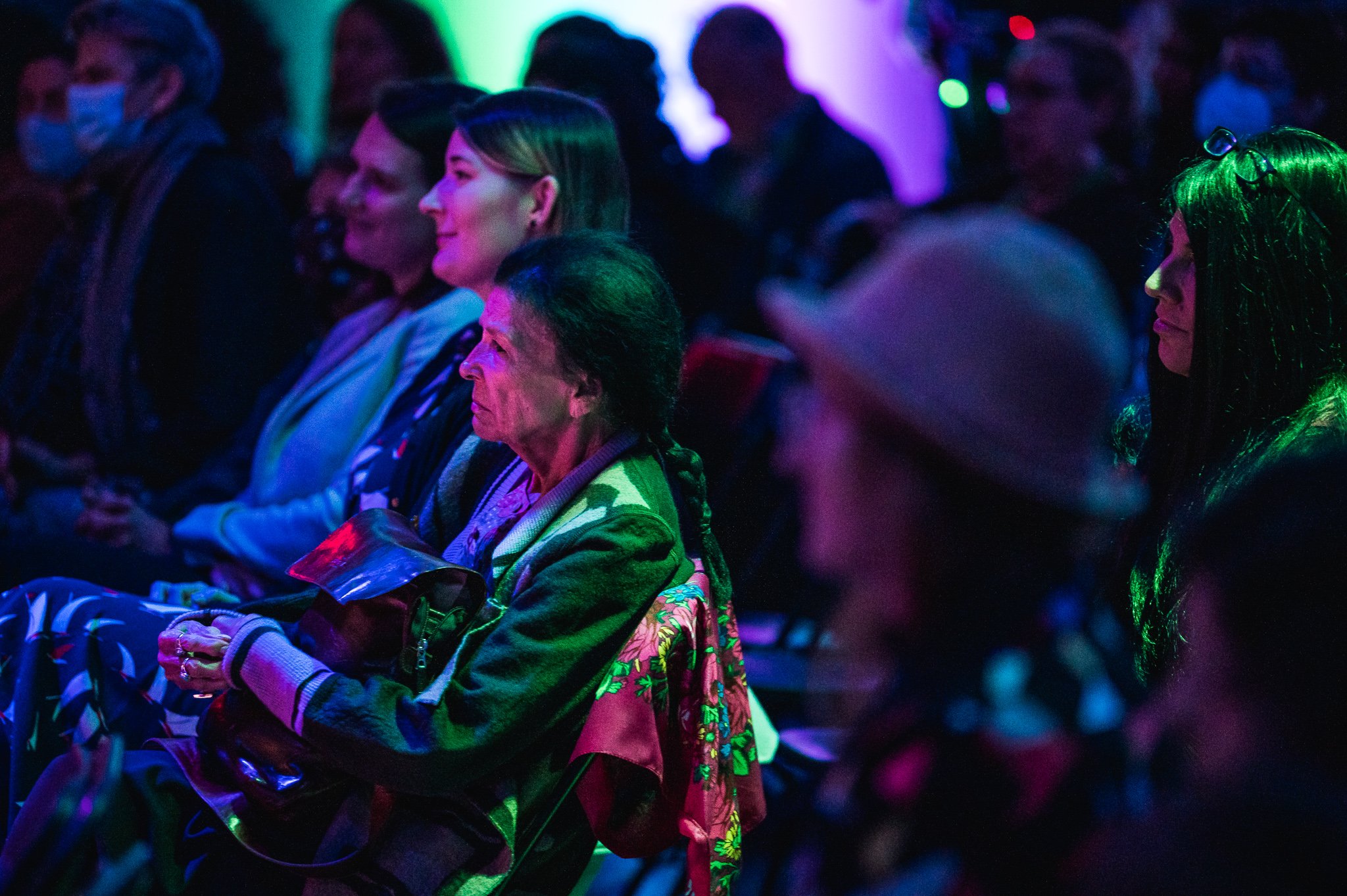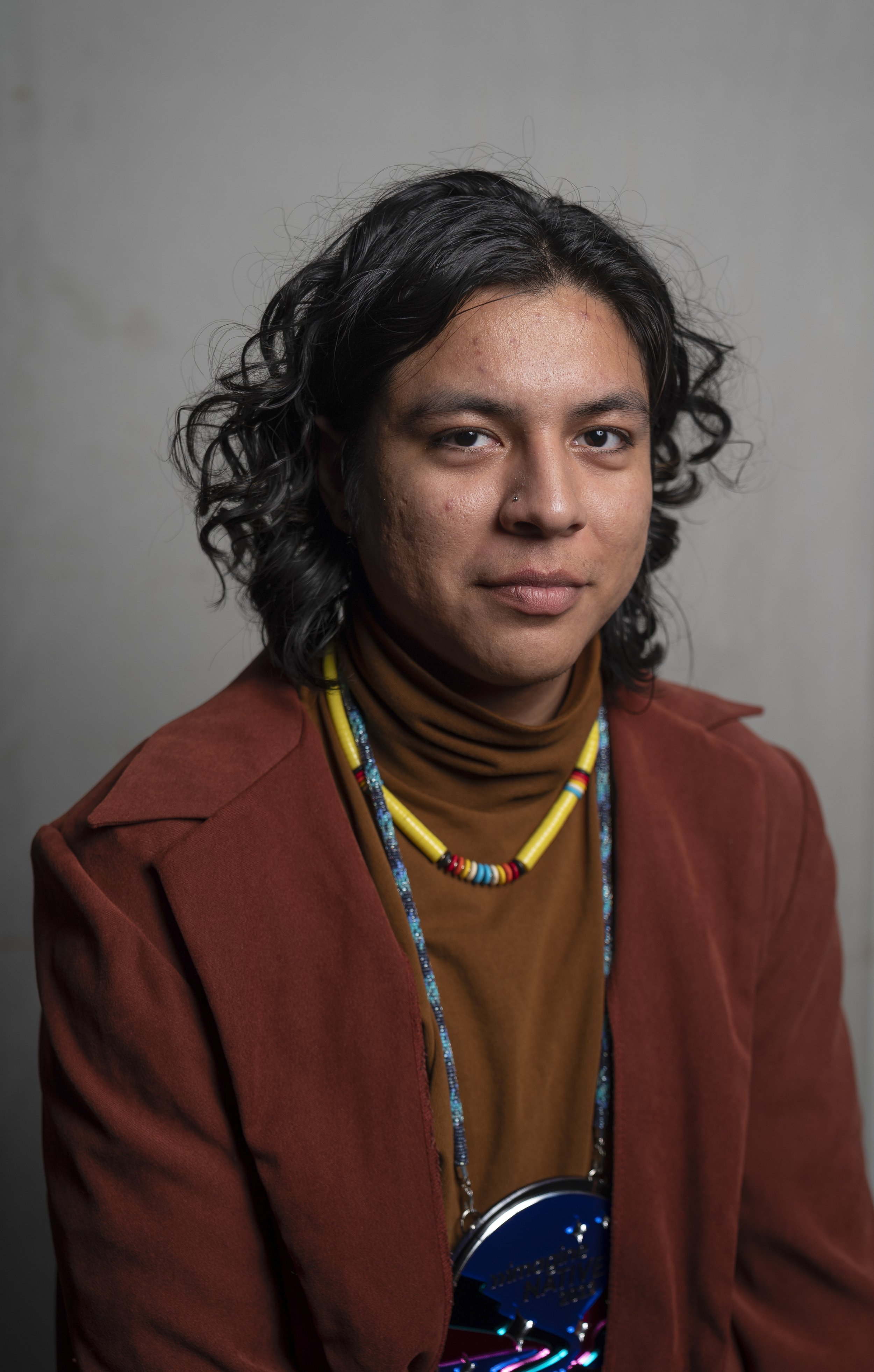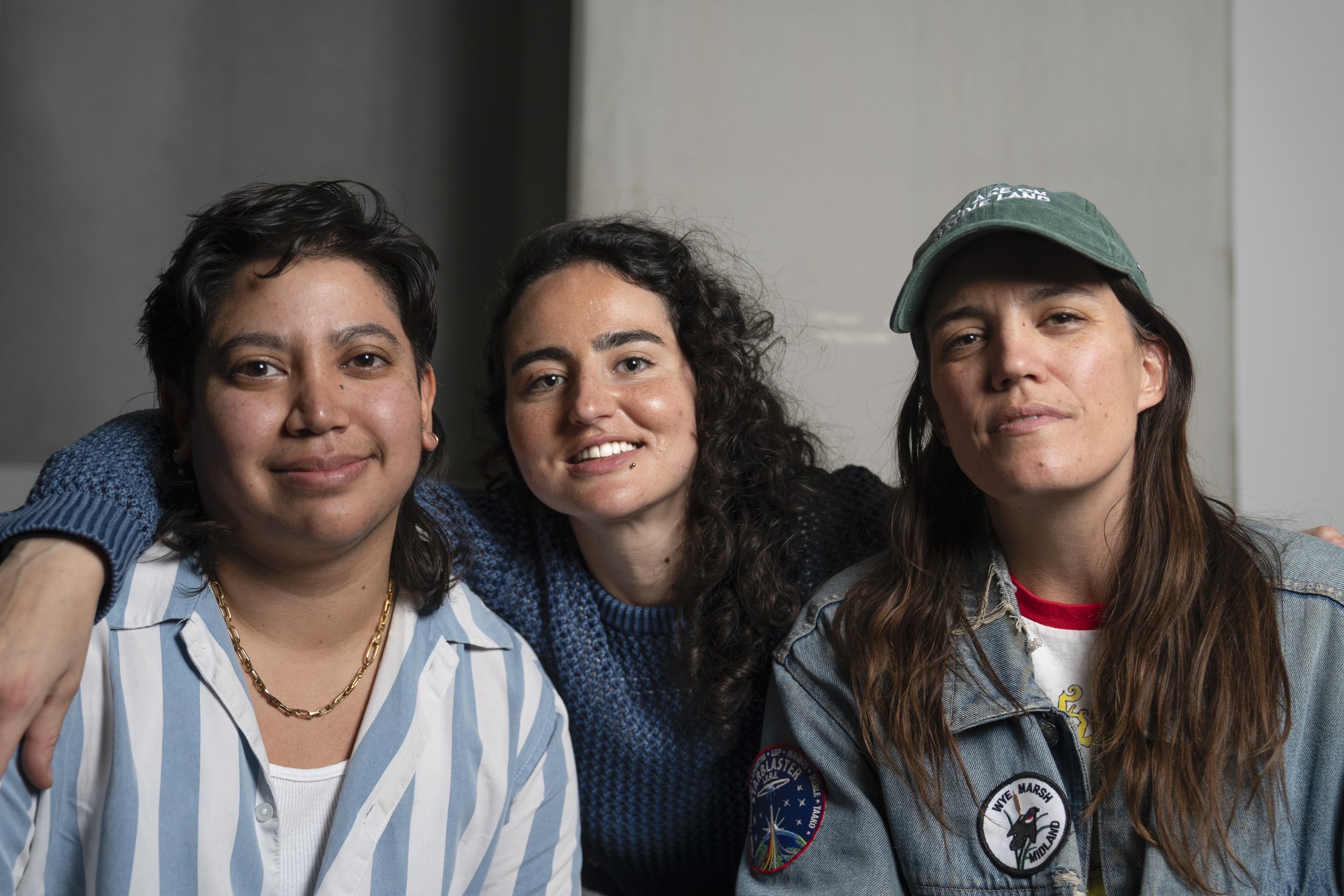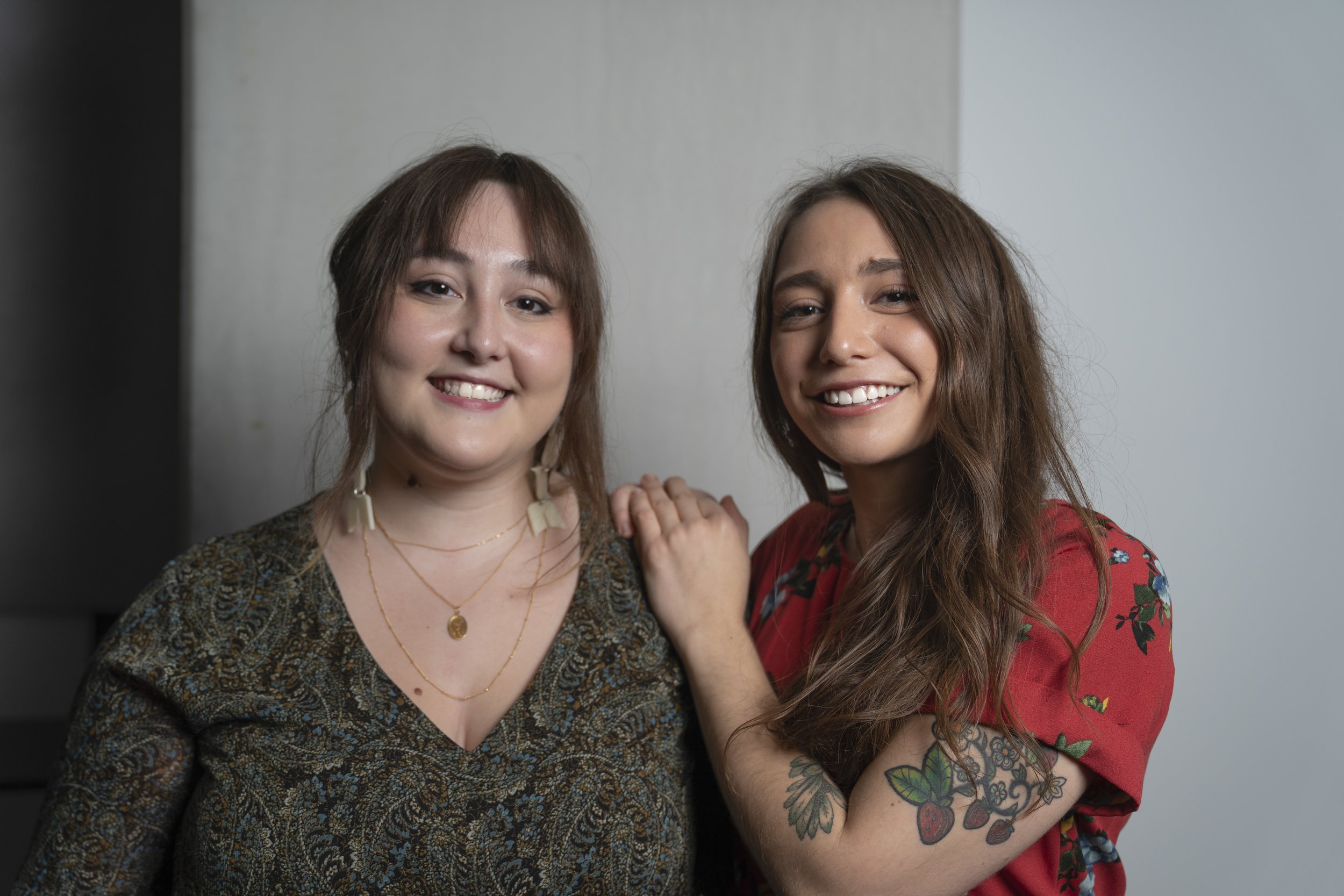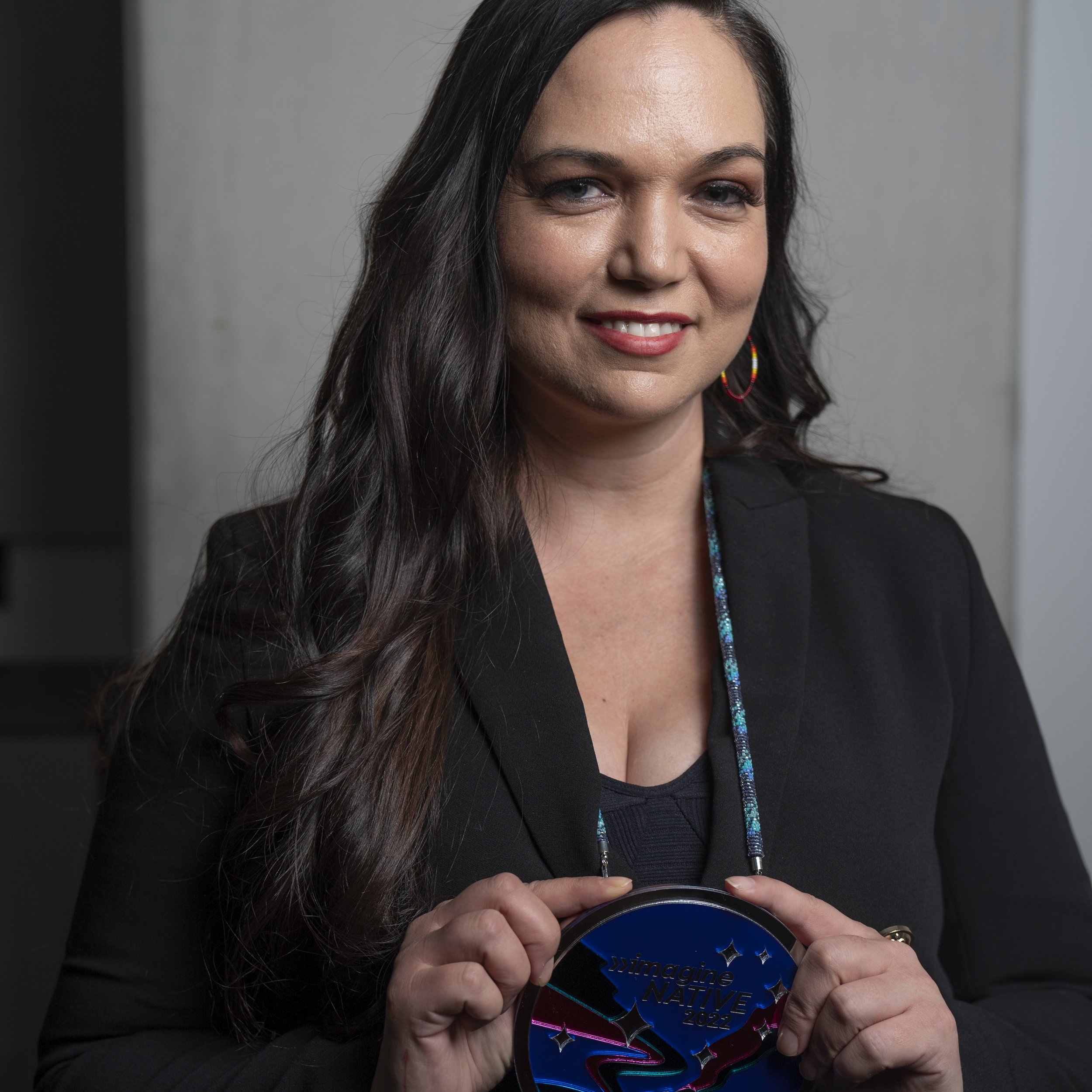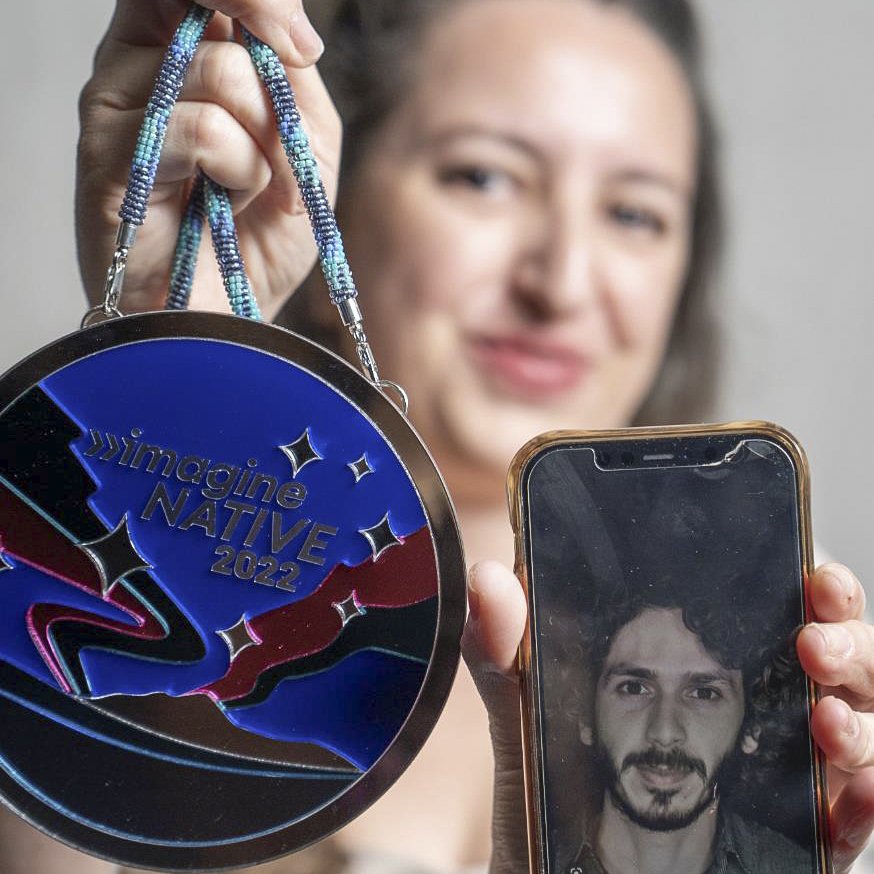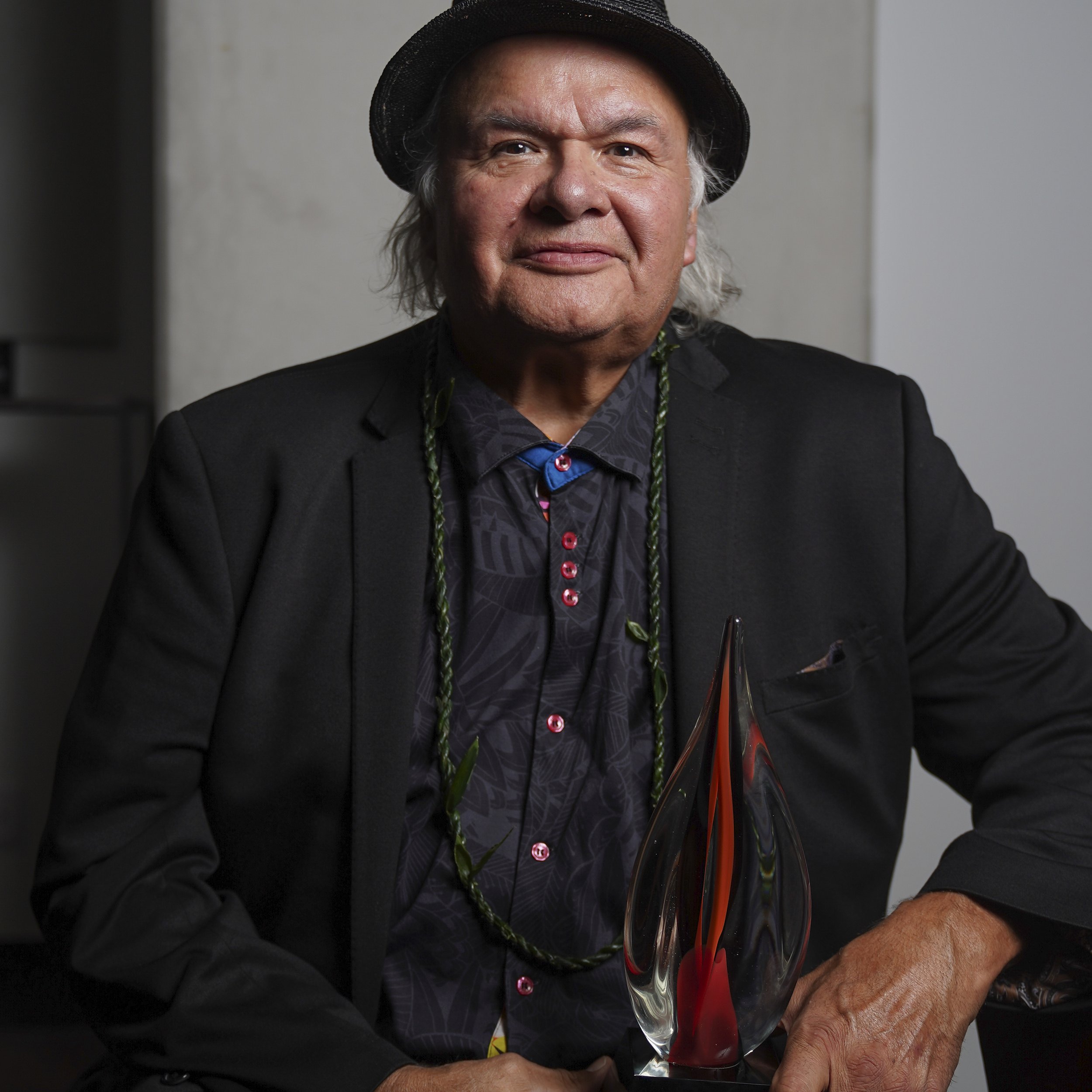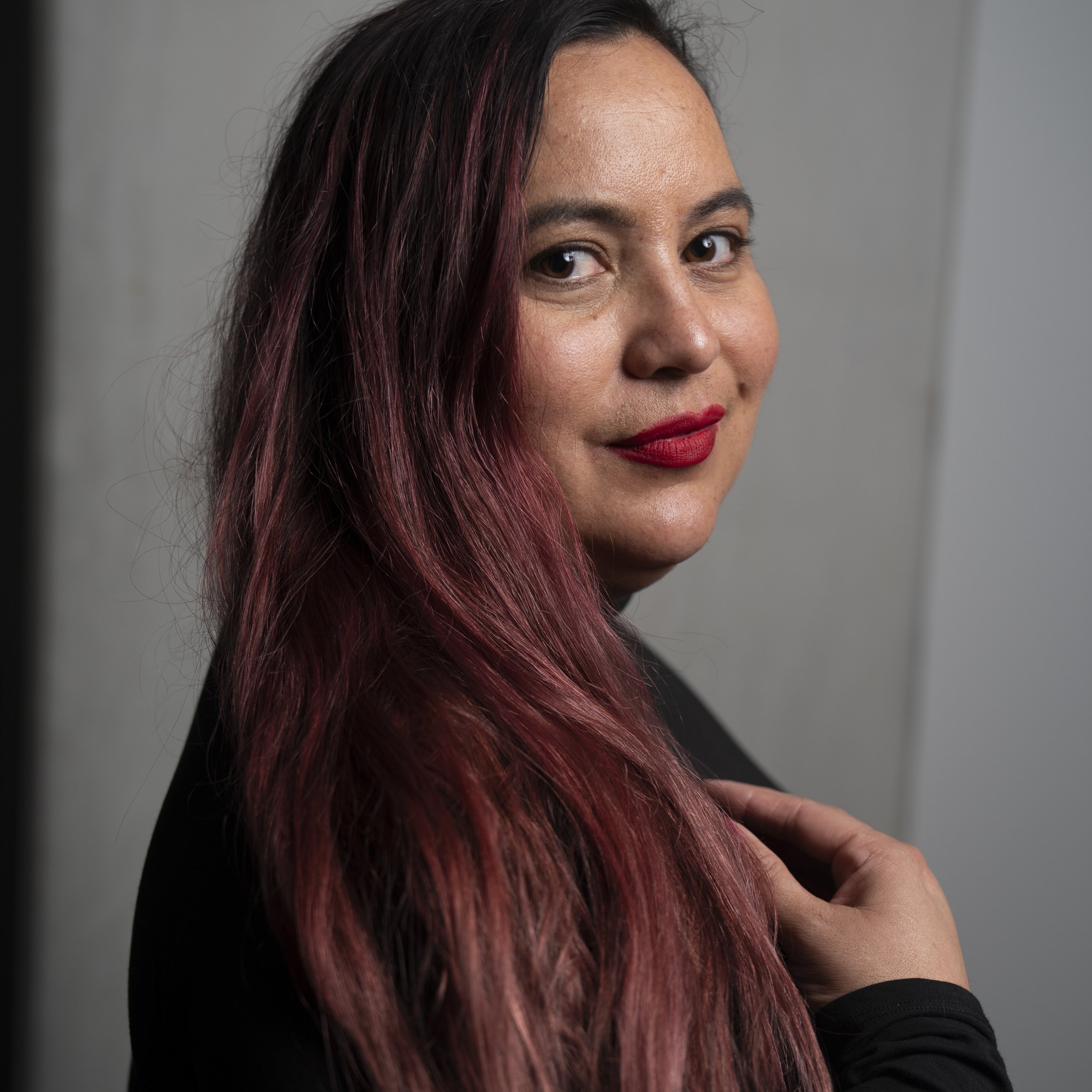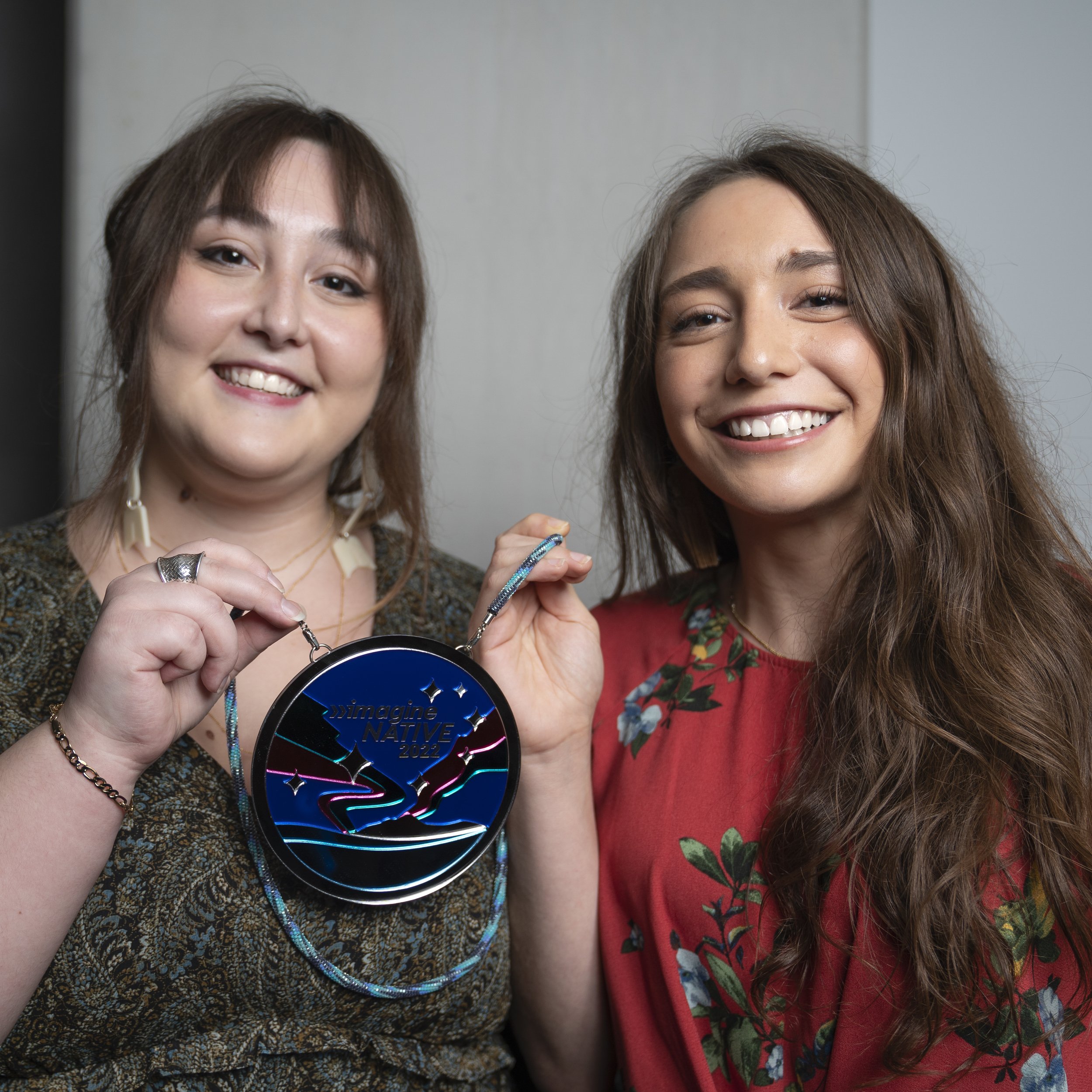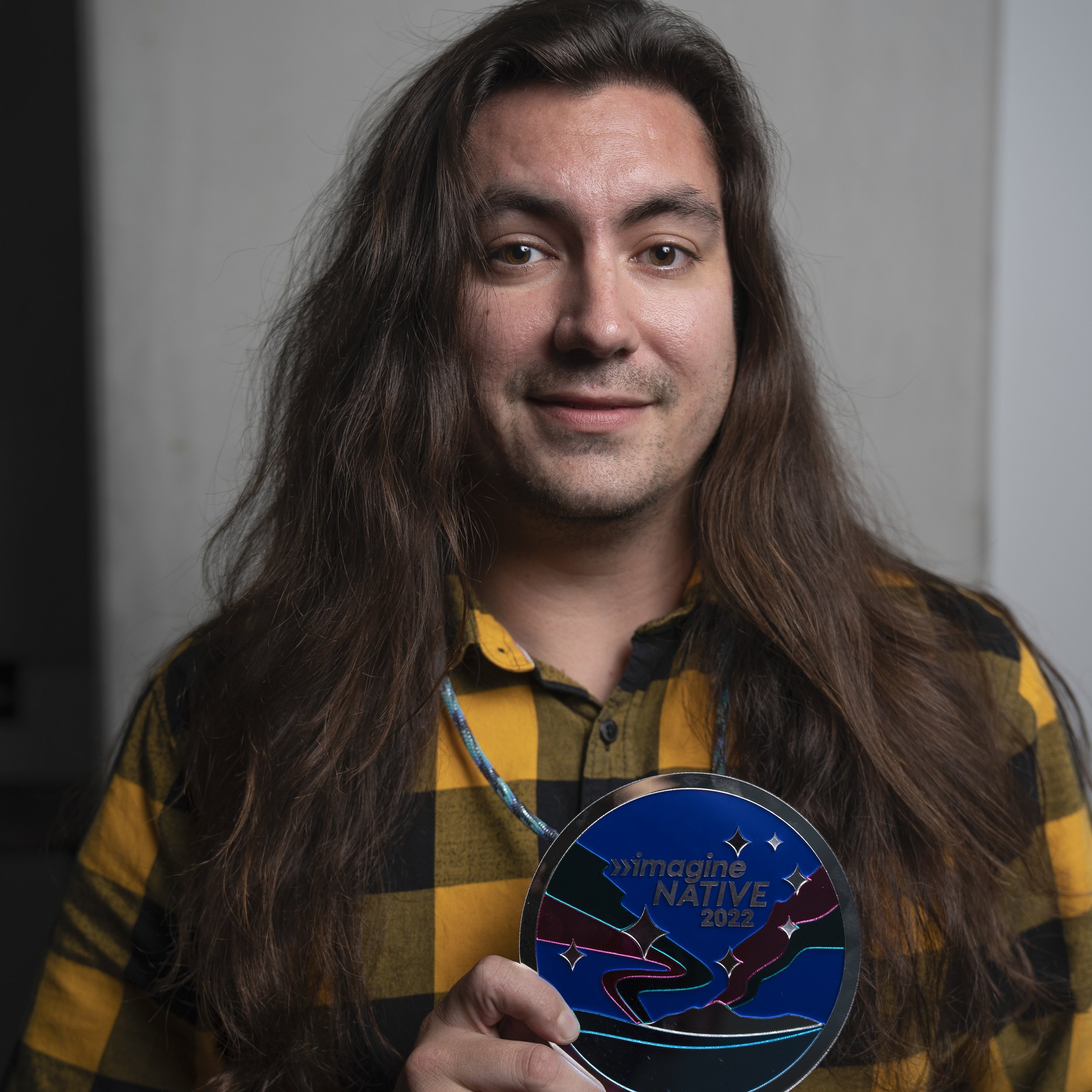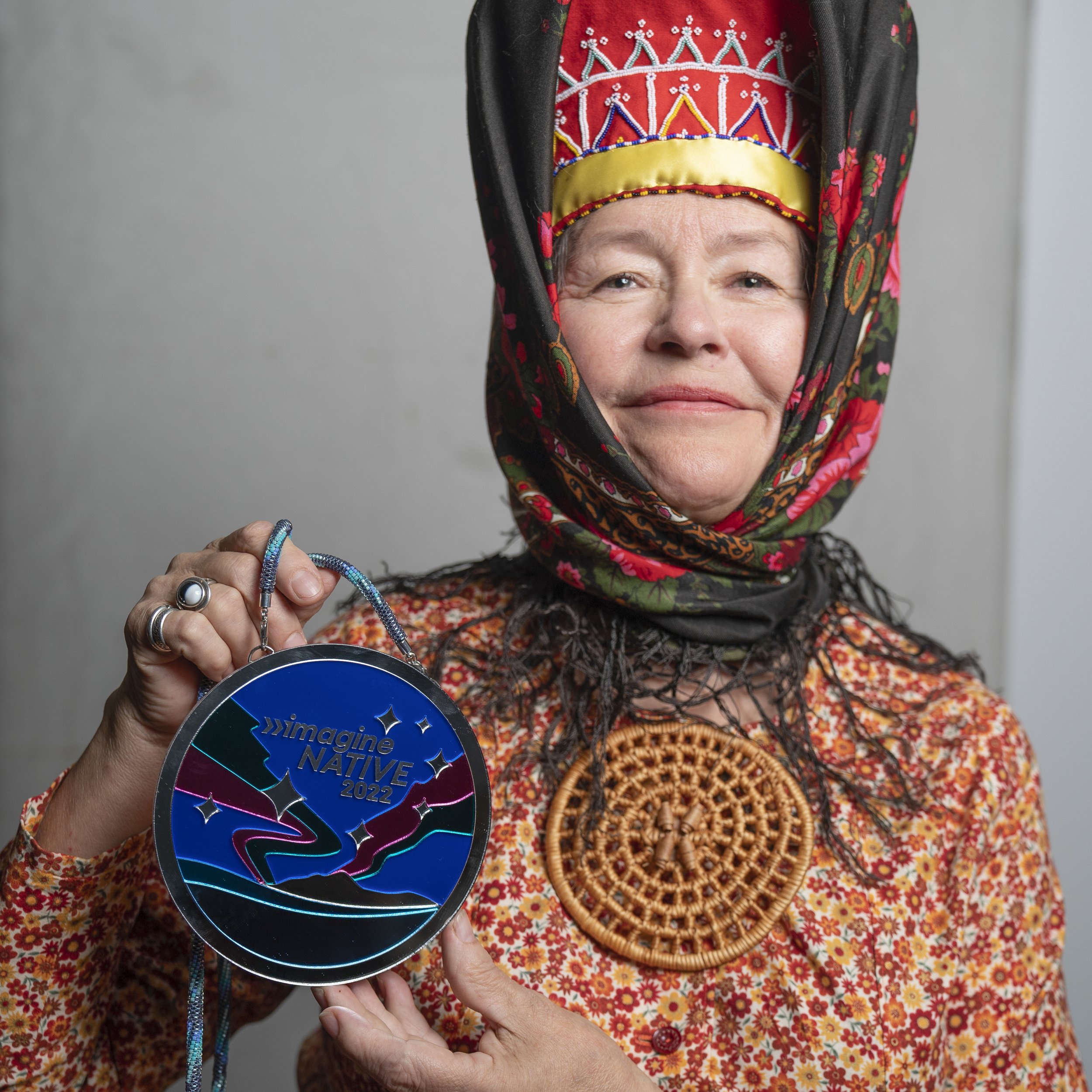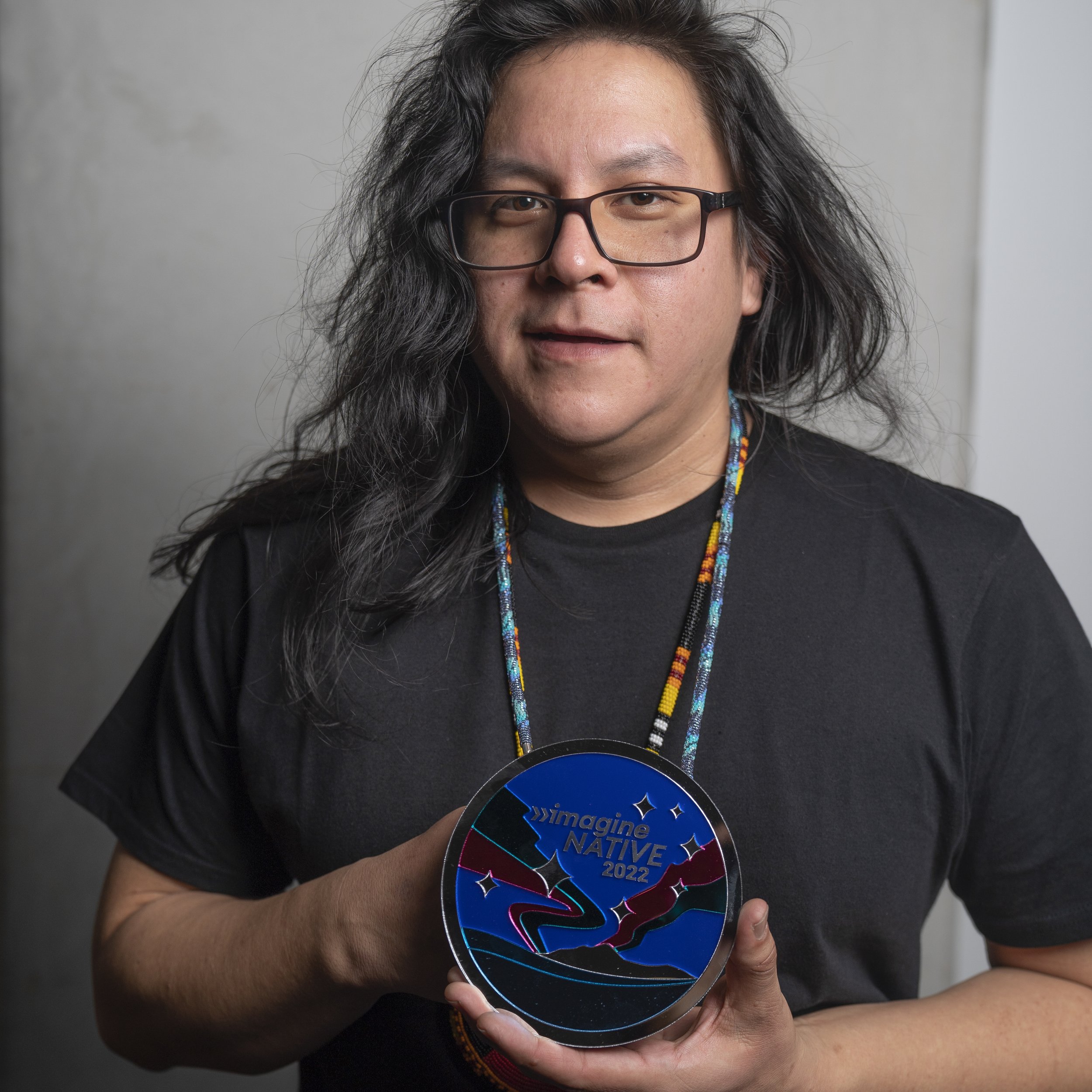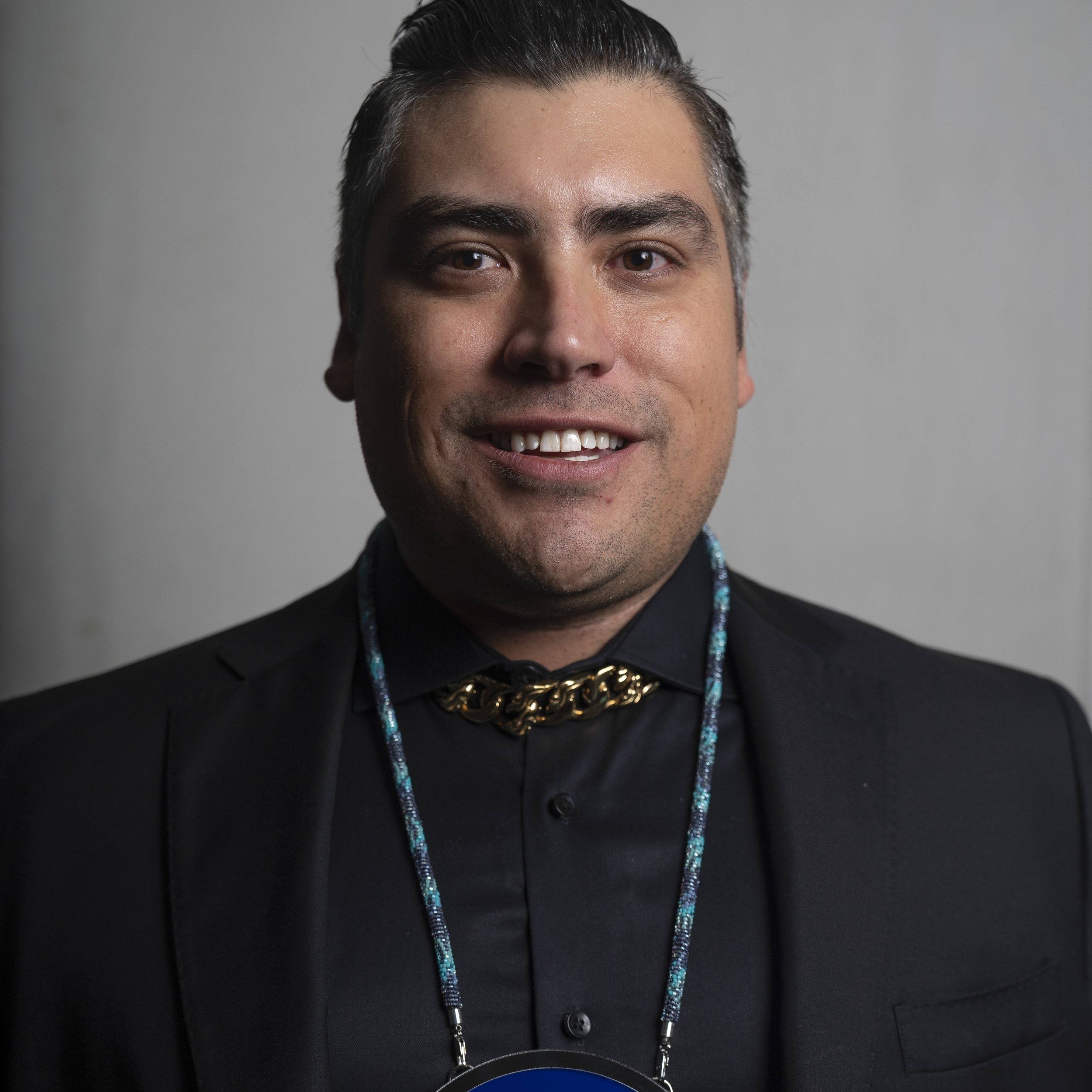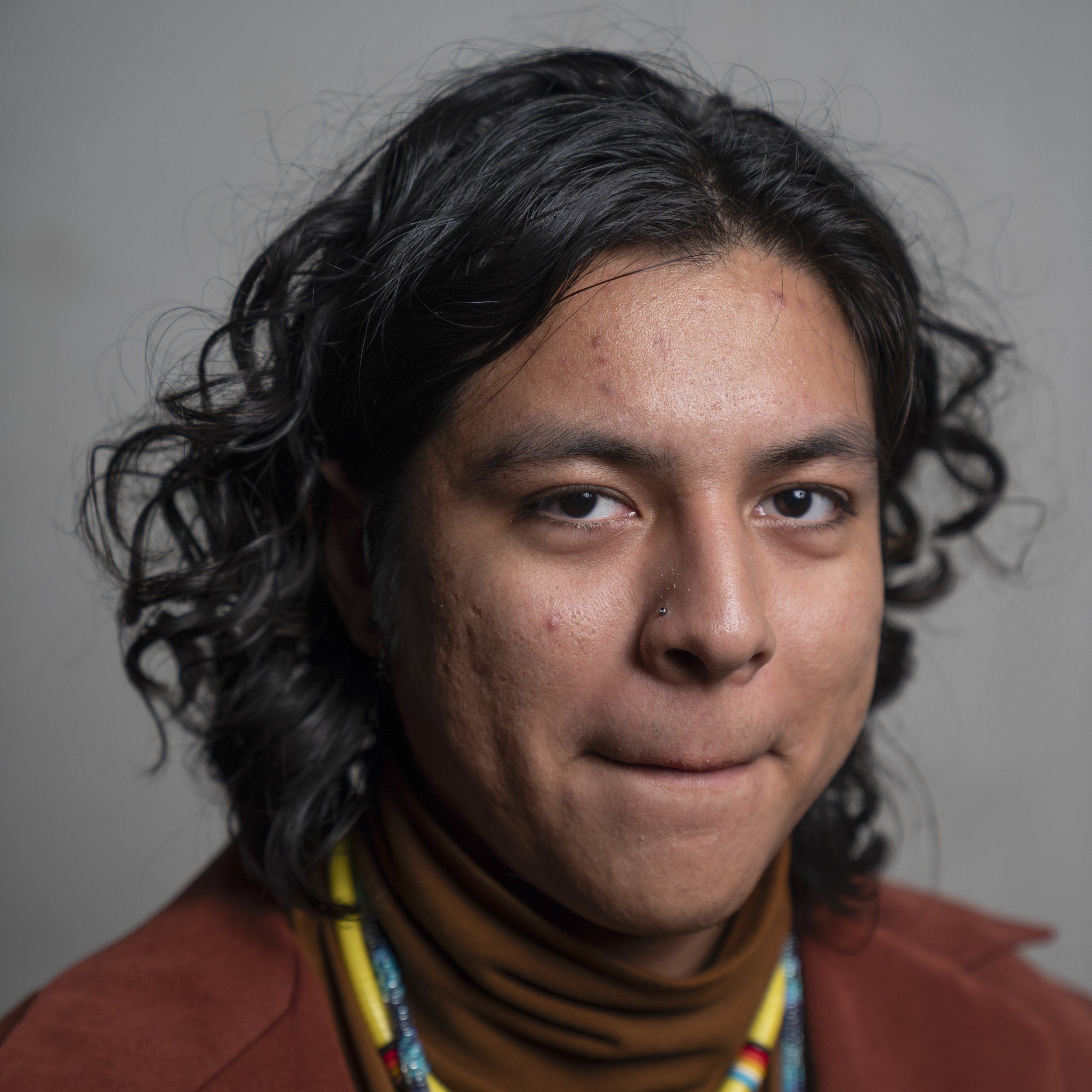ImagineNATIVE: THE FILM + MEDIA ARTS FESTIVAL GIVING A PLATFORM TO INDIGENOUS STORIES AND GLOBAL TALENT
WORDS BY NEHAA BIMAL
IMAGES BY DANIELLE KHAN DA SILVA, DAVID COULSON, LUBNA SARIGAT, BRENDAN DAHLIN NOLAN, JESS CZARNECKI, TAMUNOIBIFIRI FOMBO AND PENGKUEI BEN HUANG
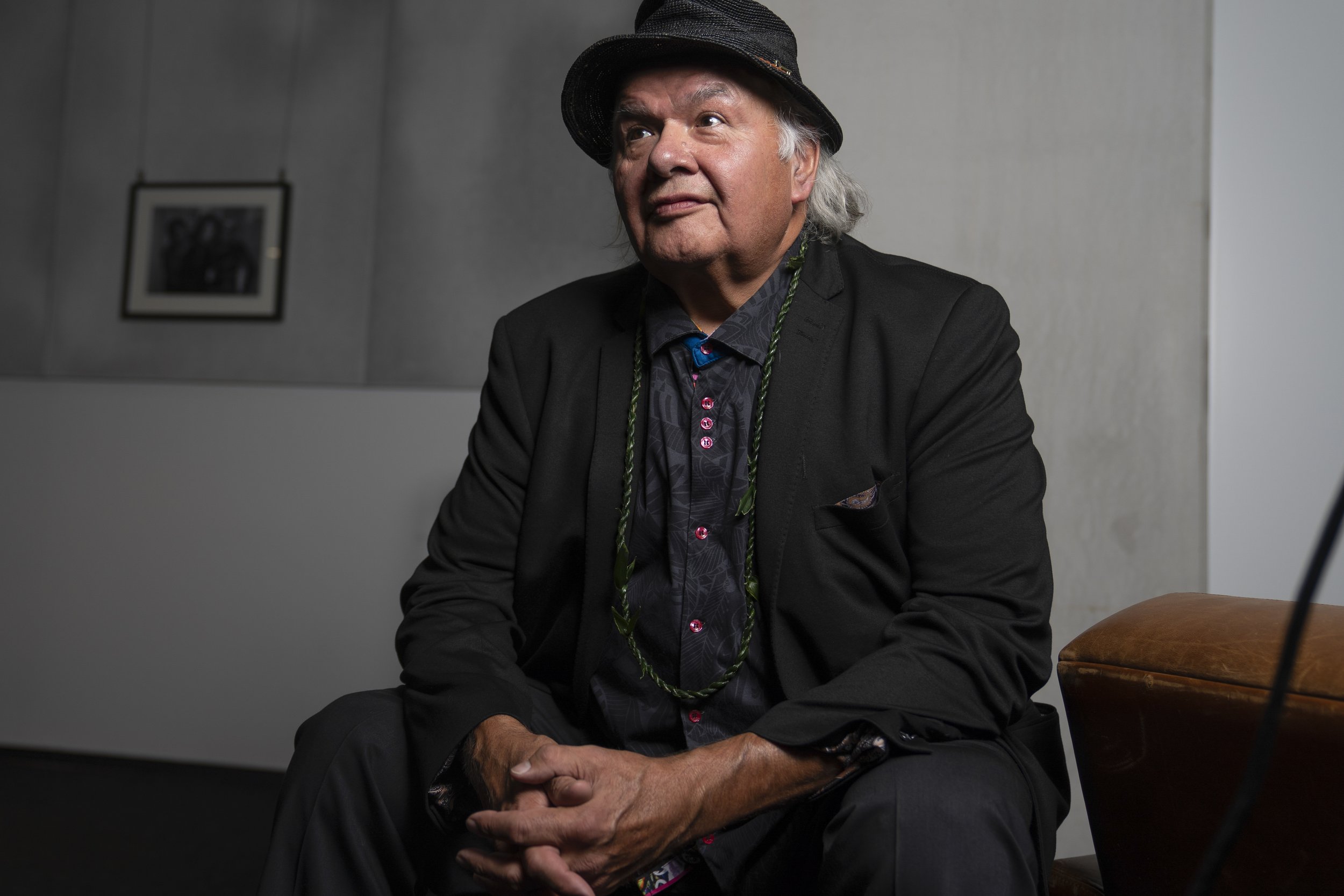
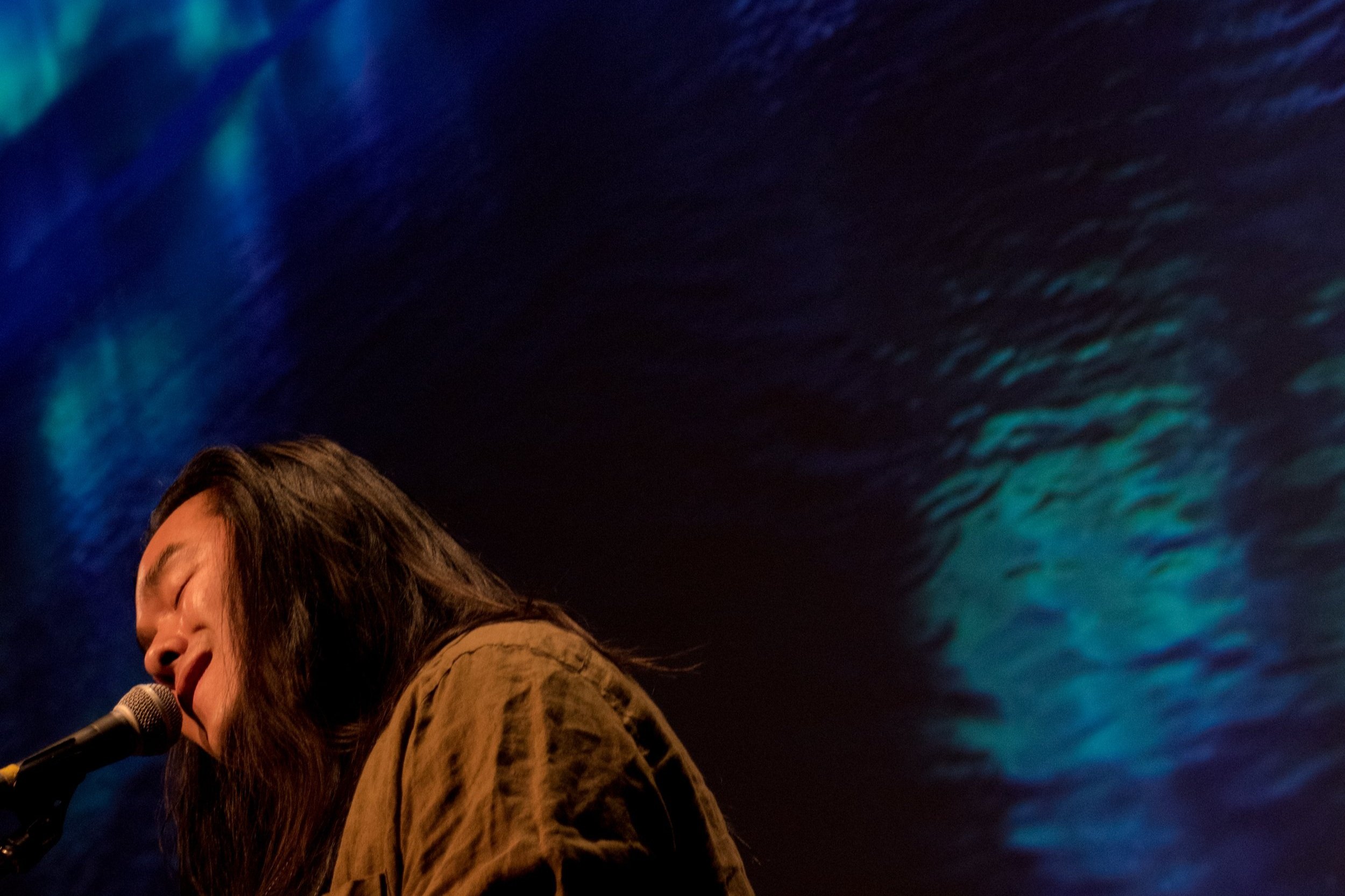
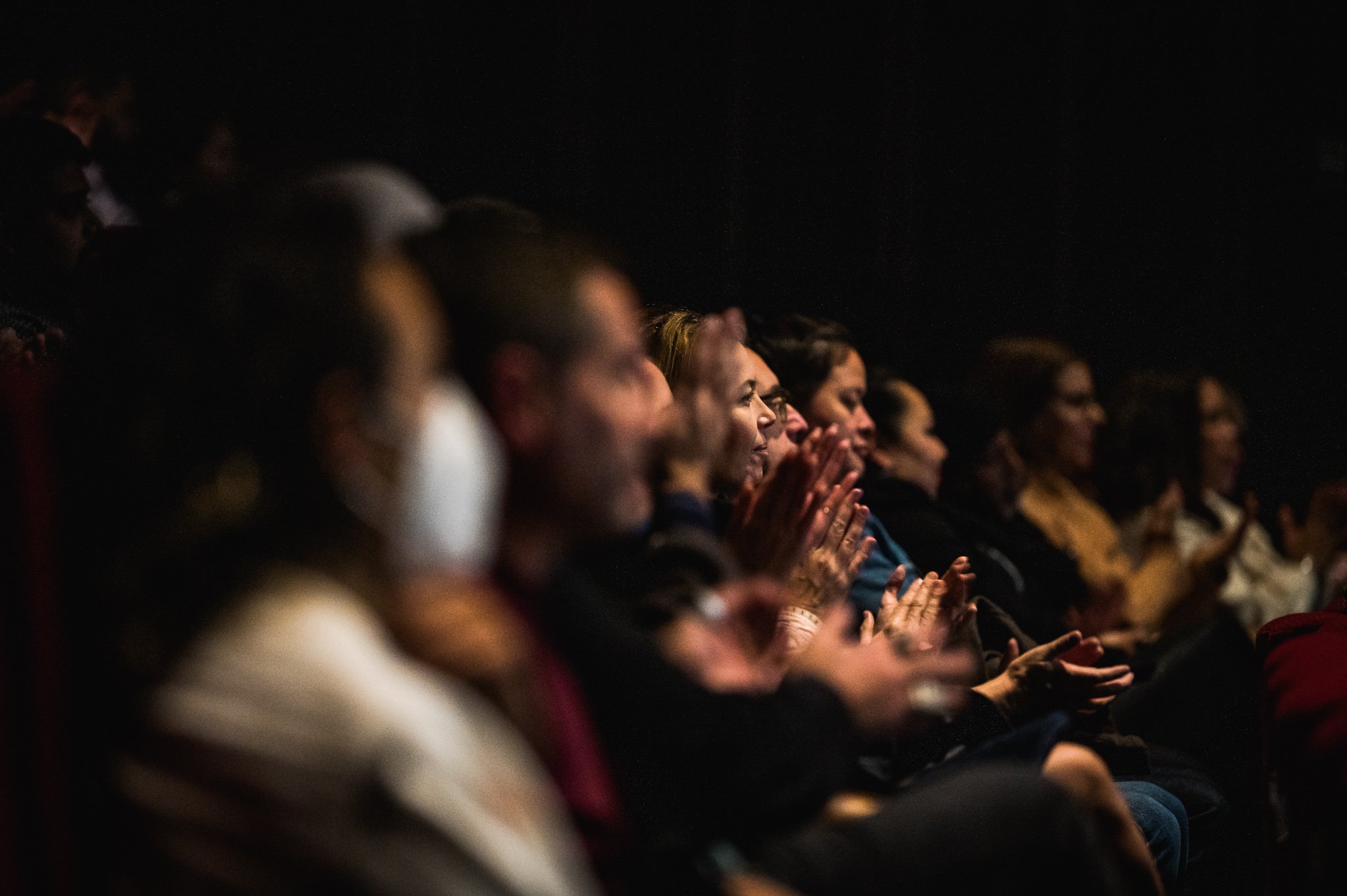
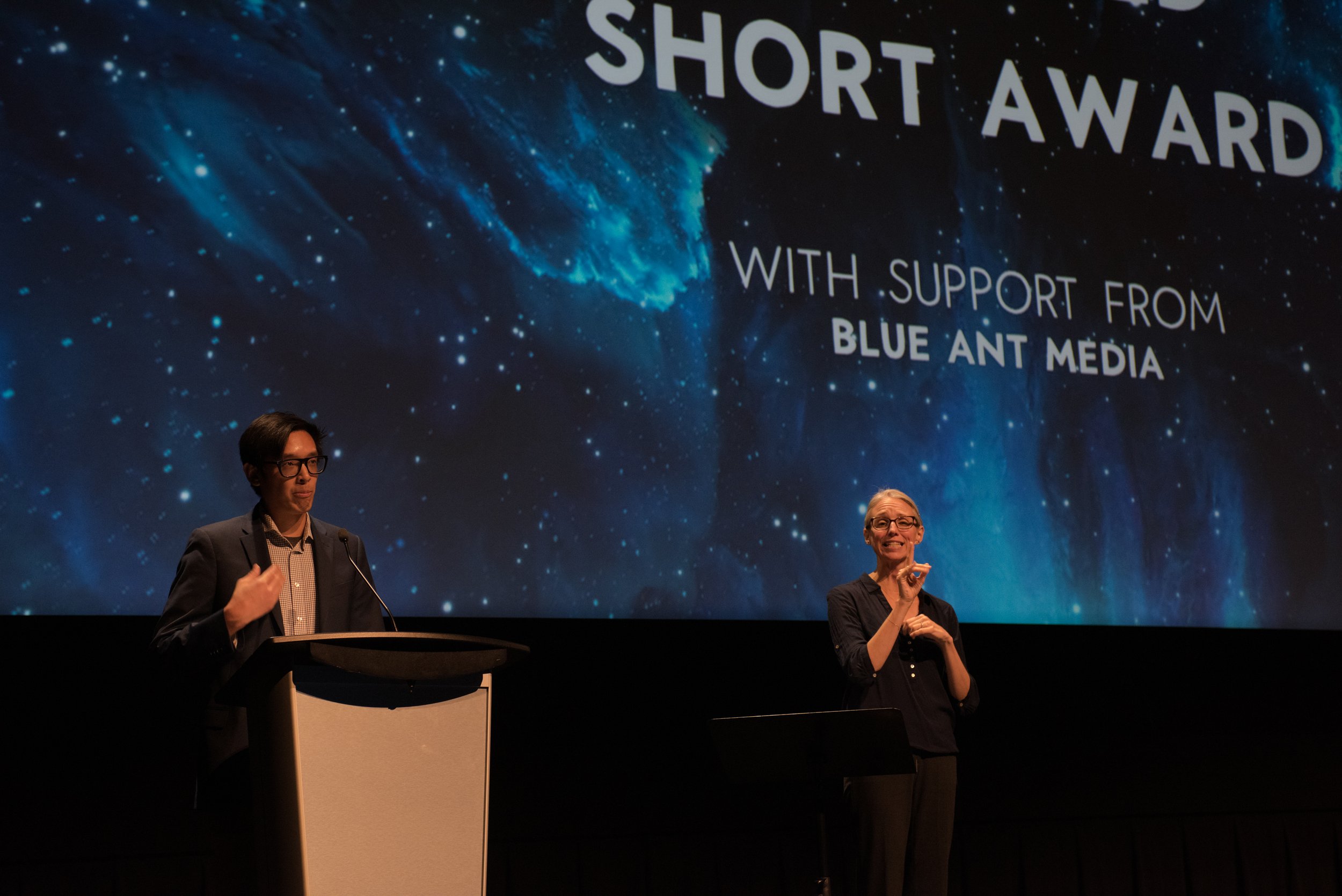
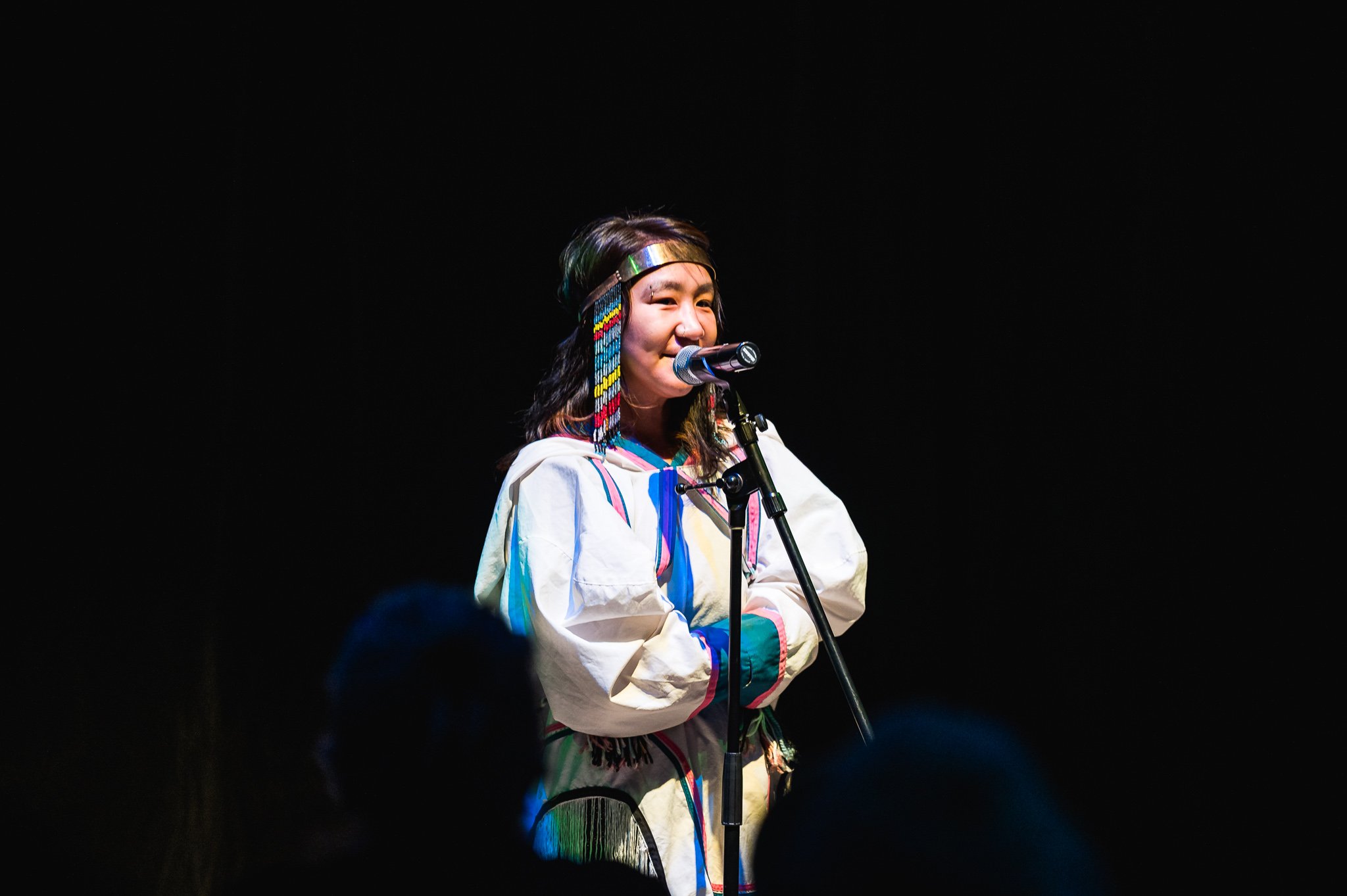
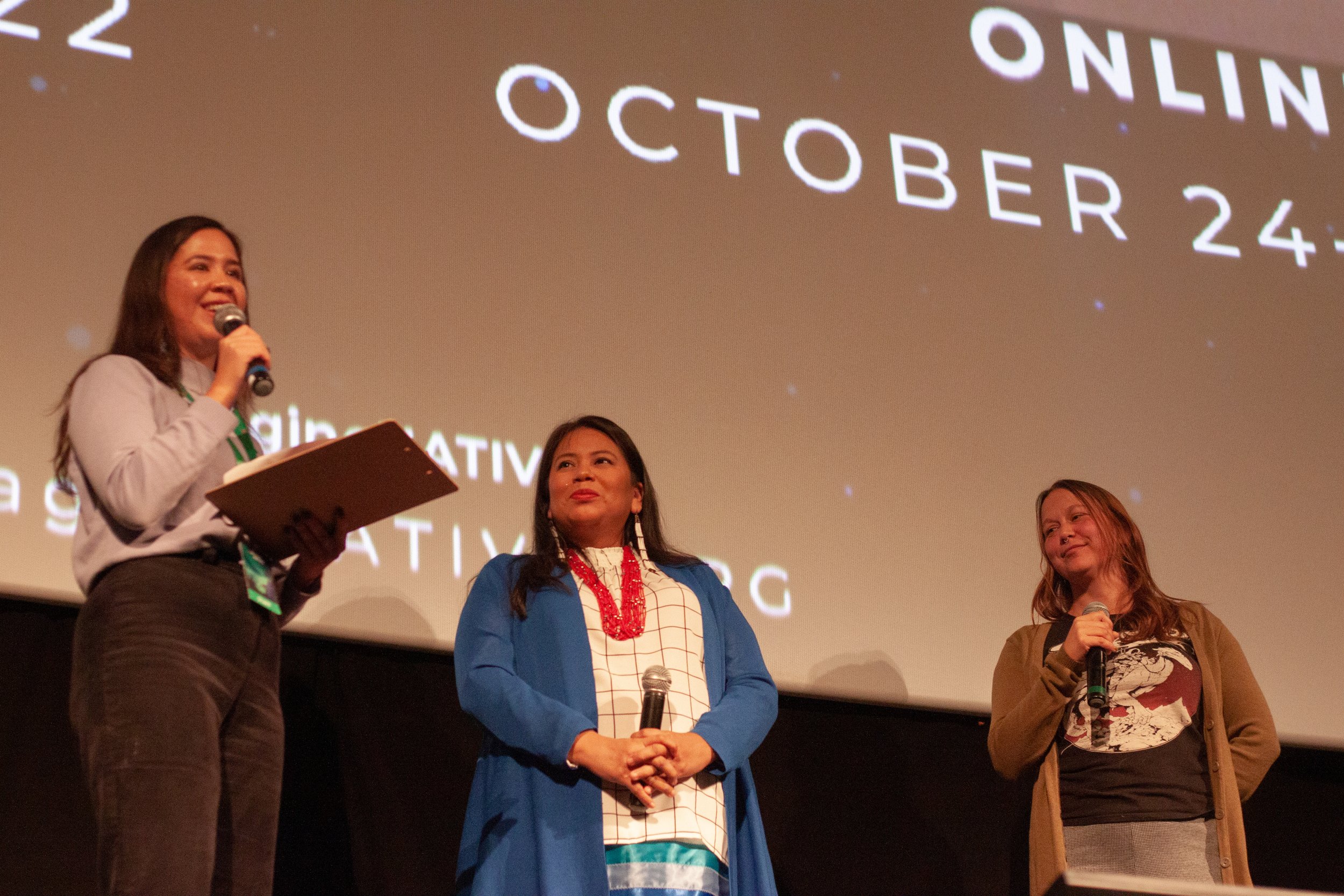
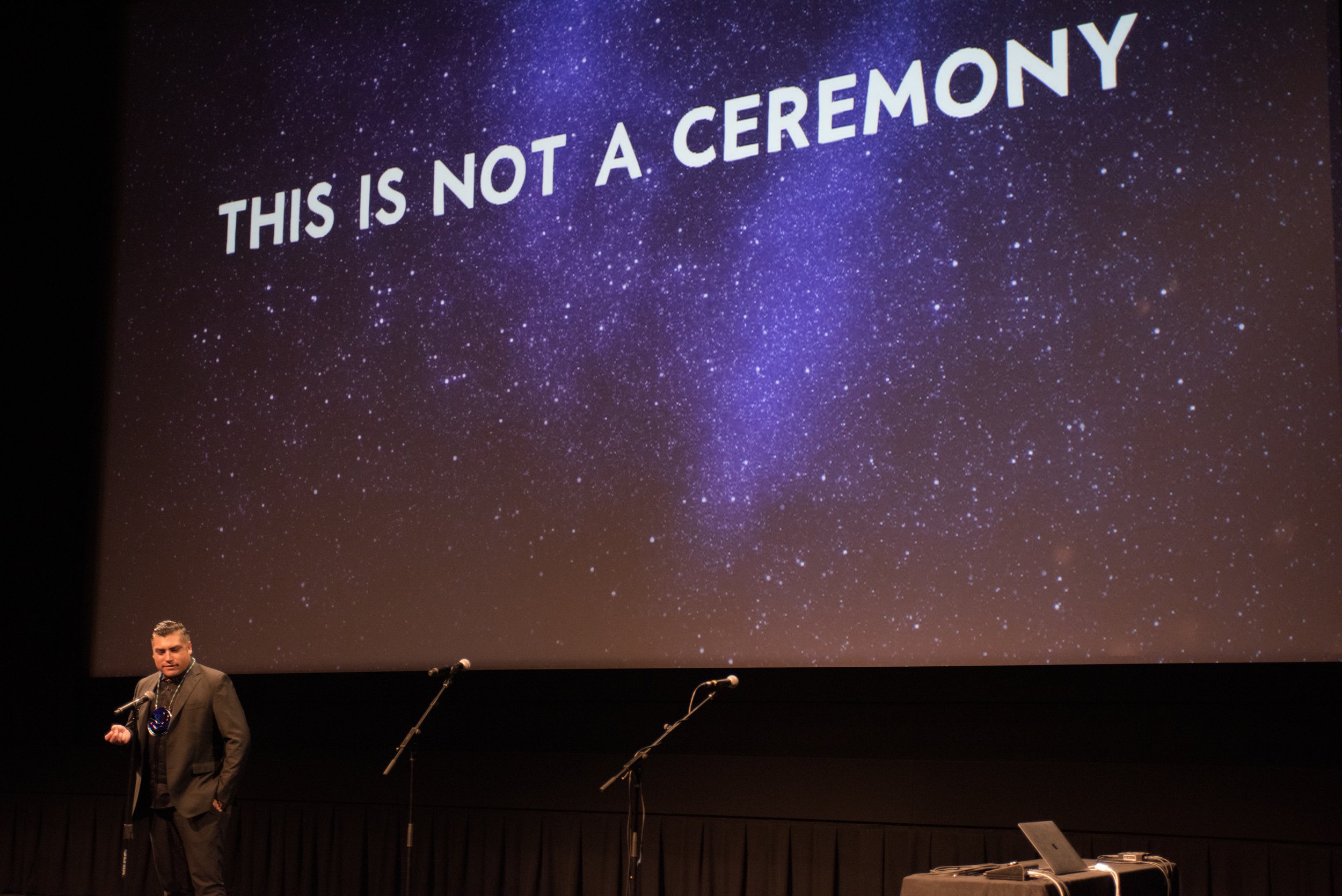
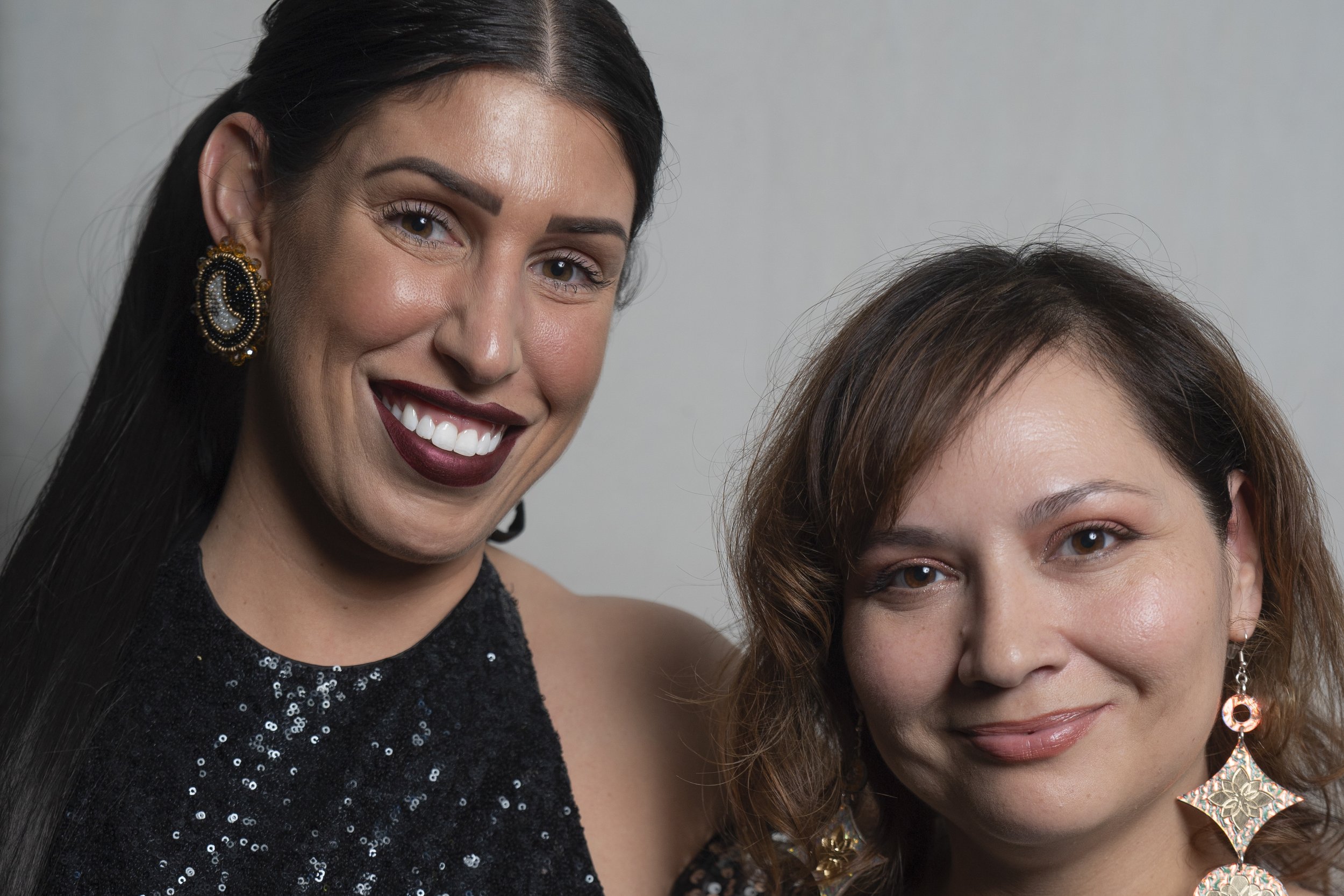
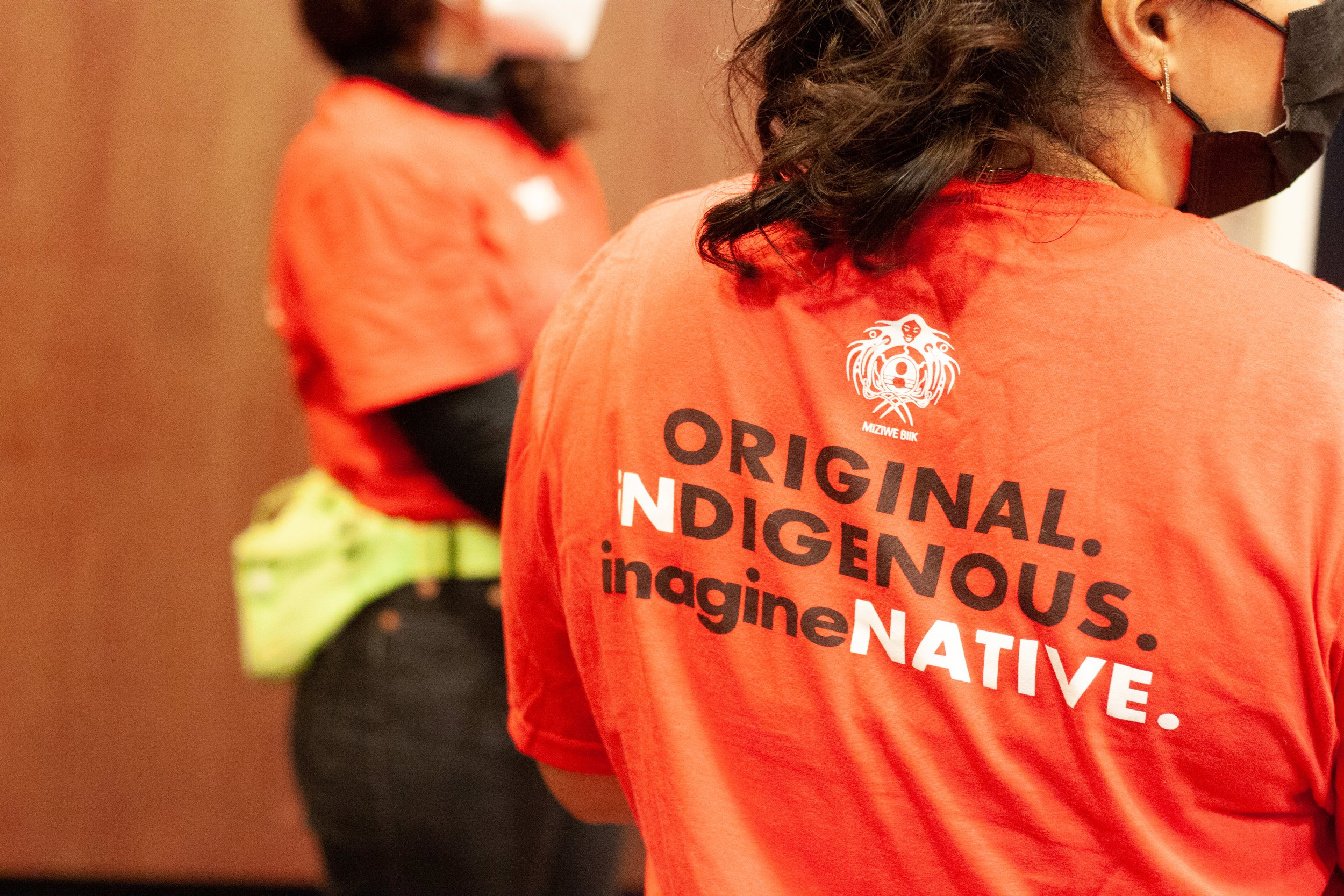
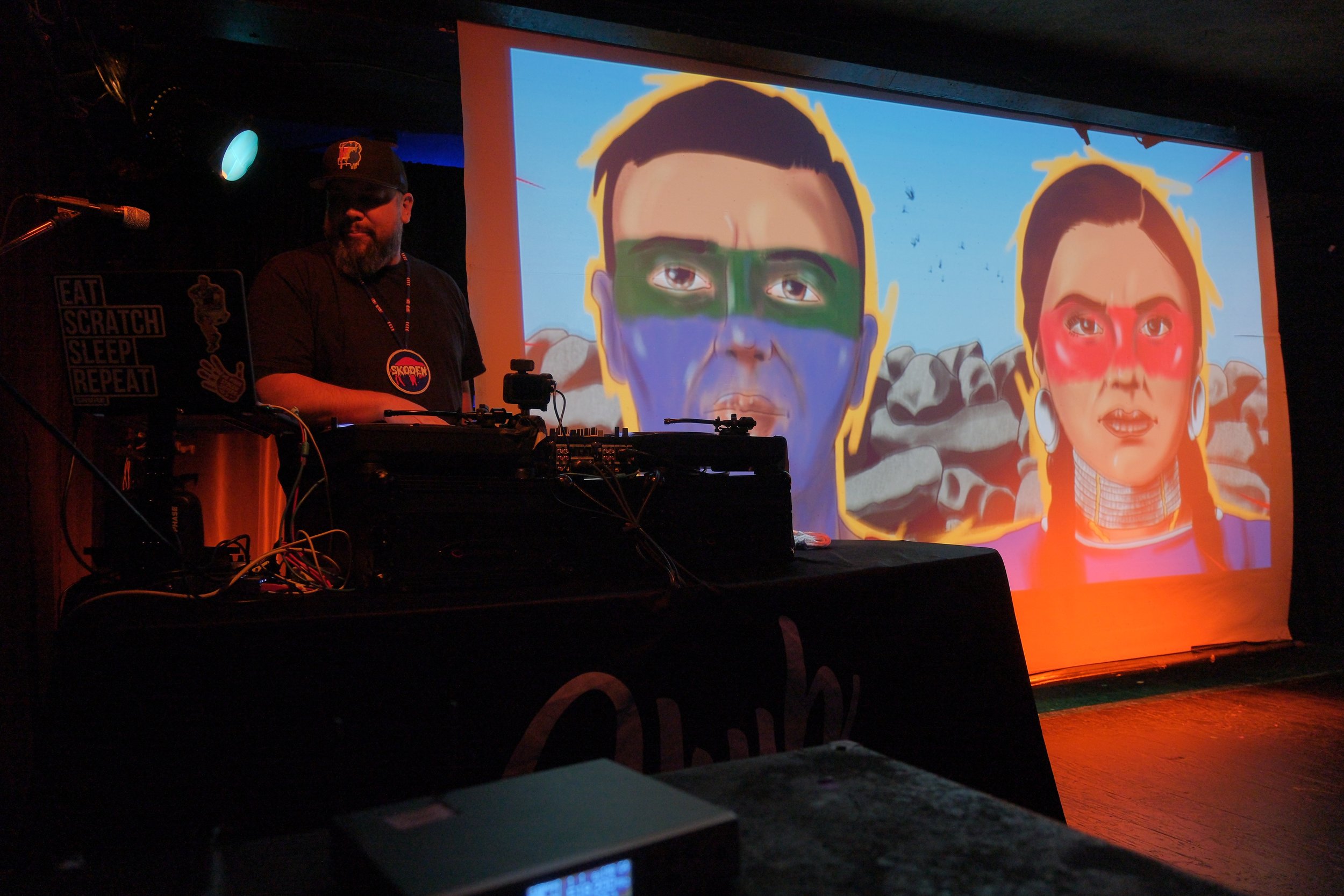
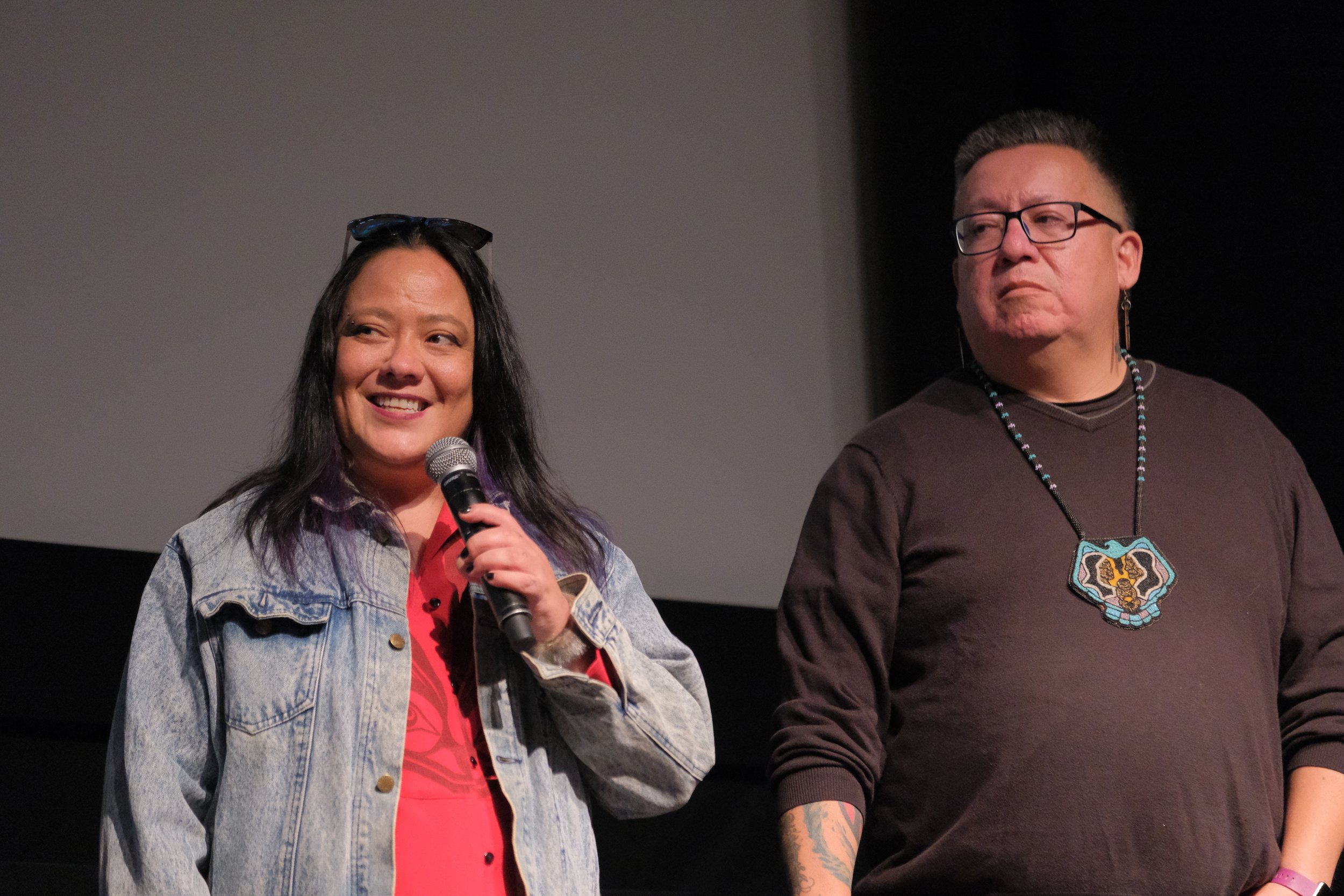
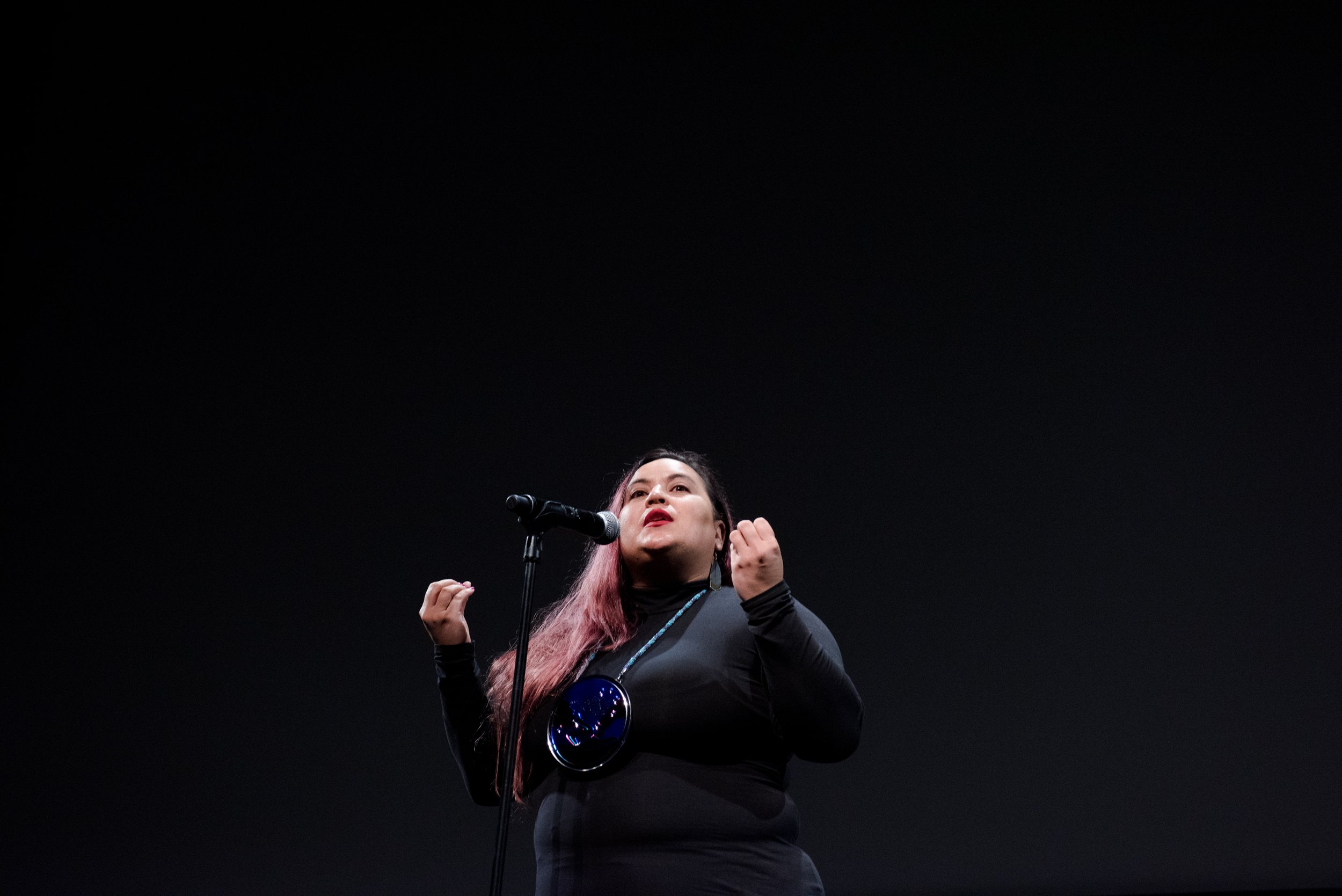
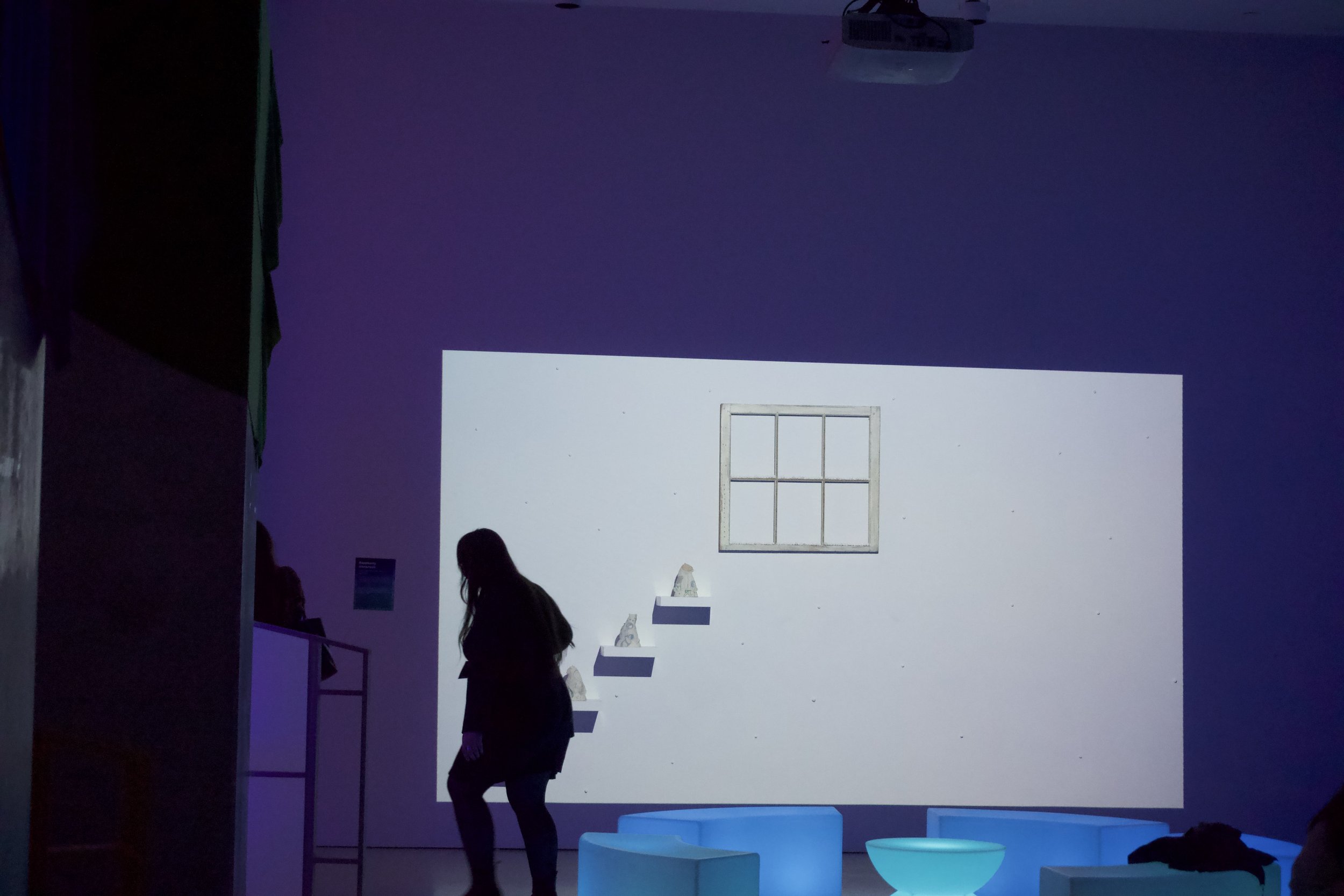
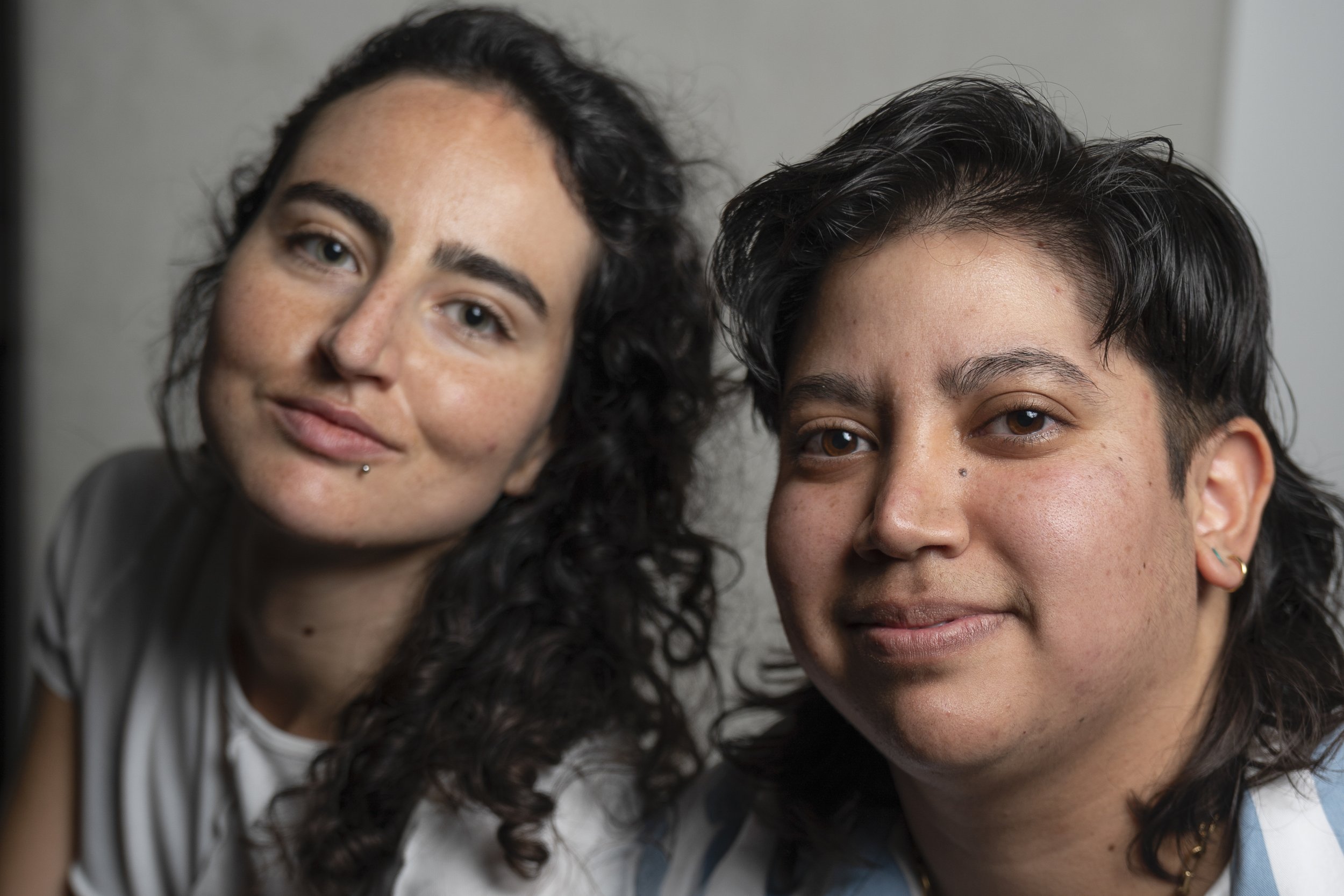
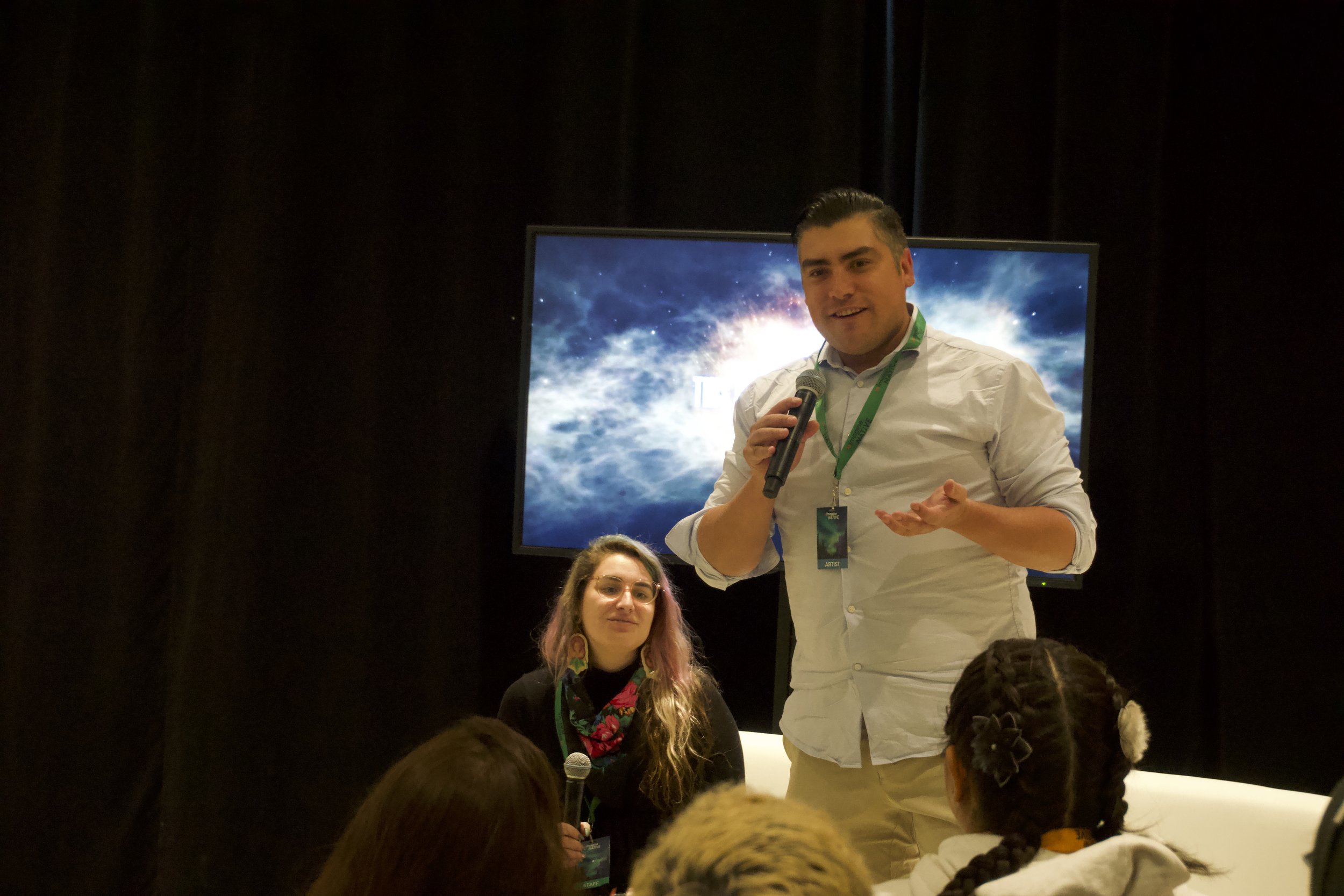
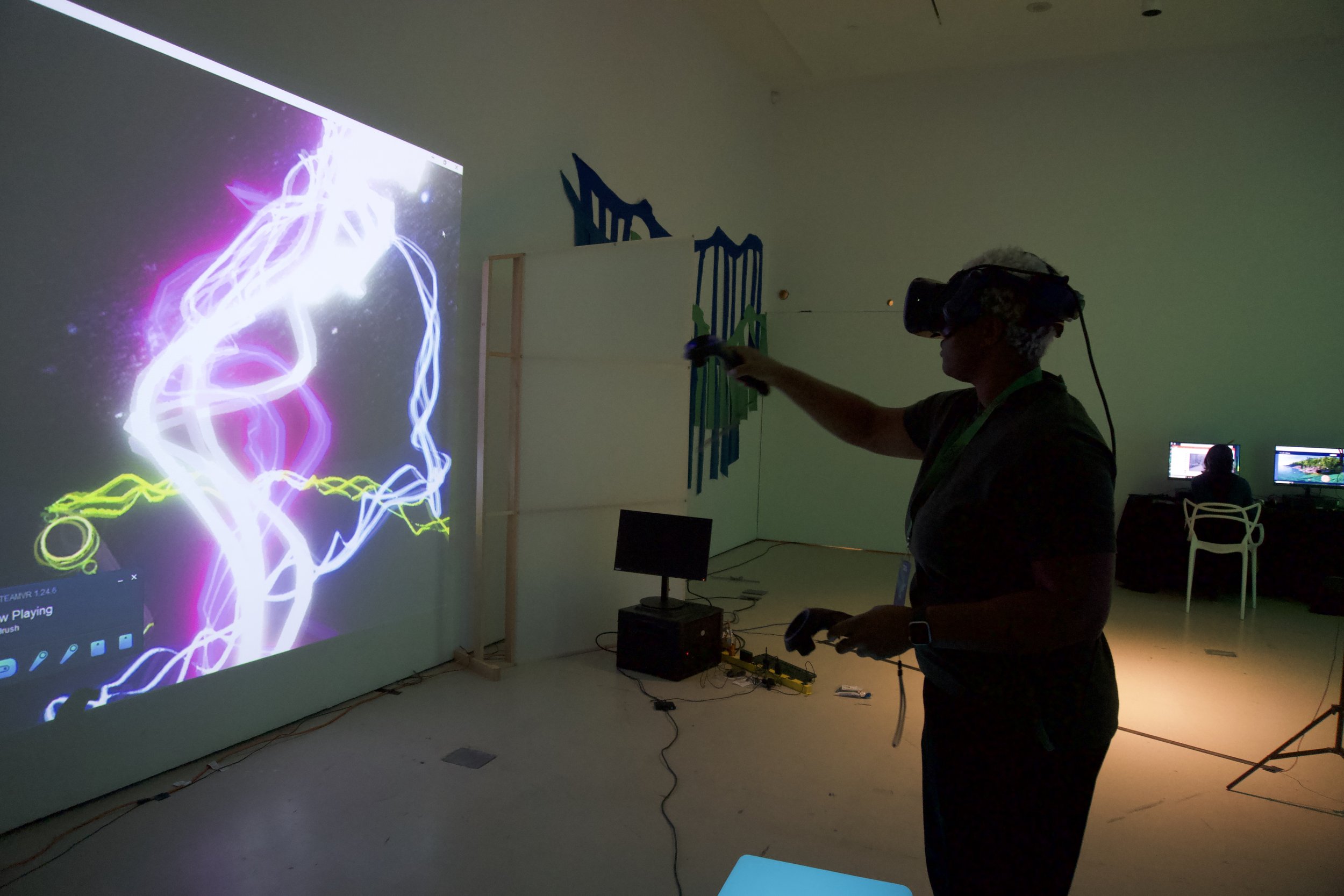
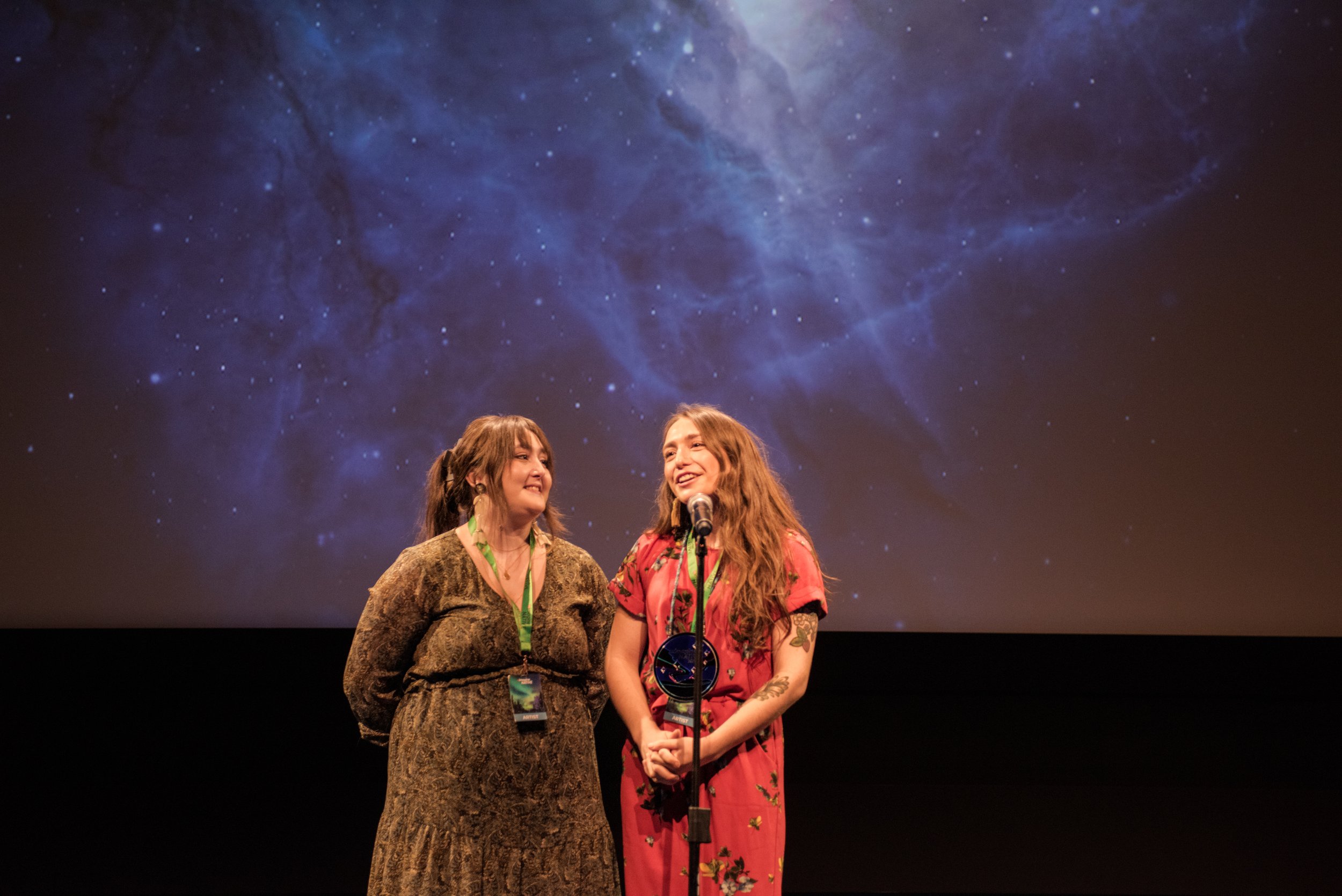
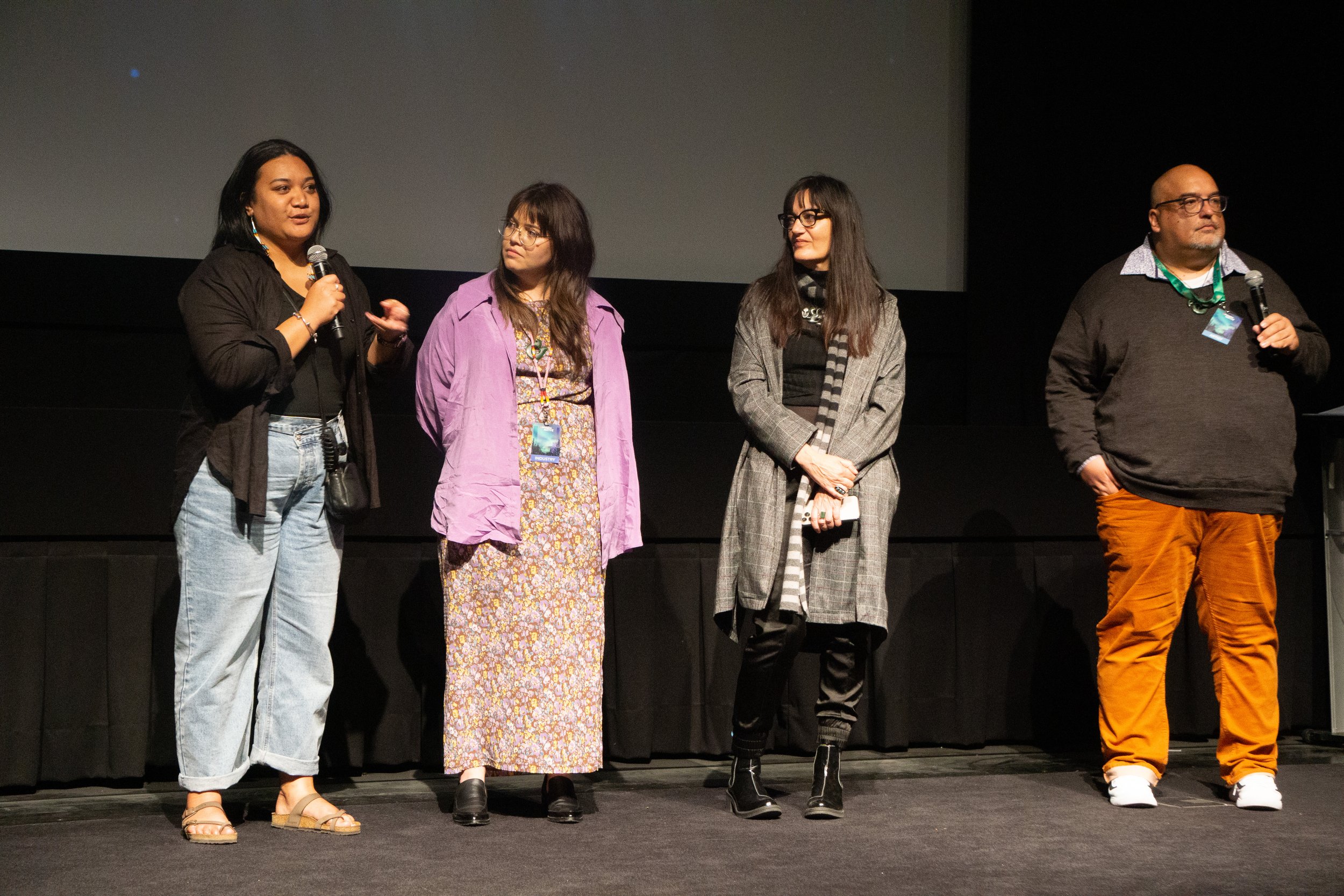
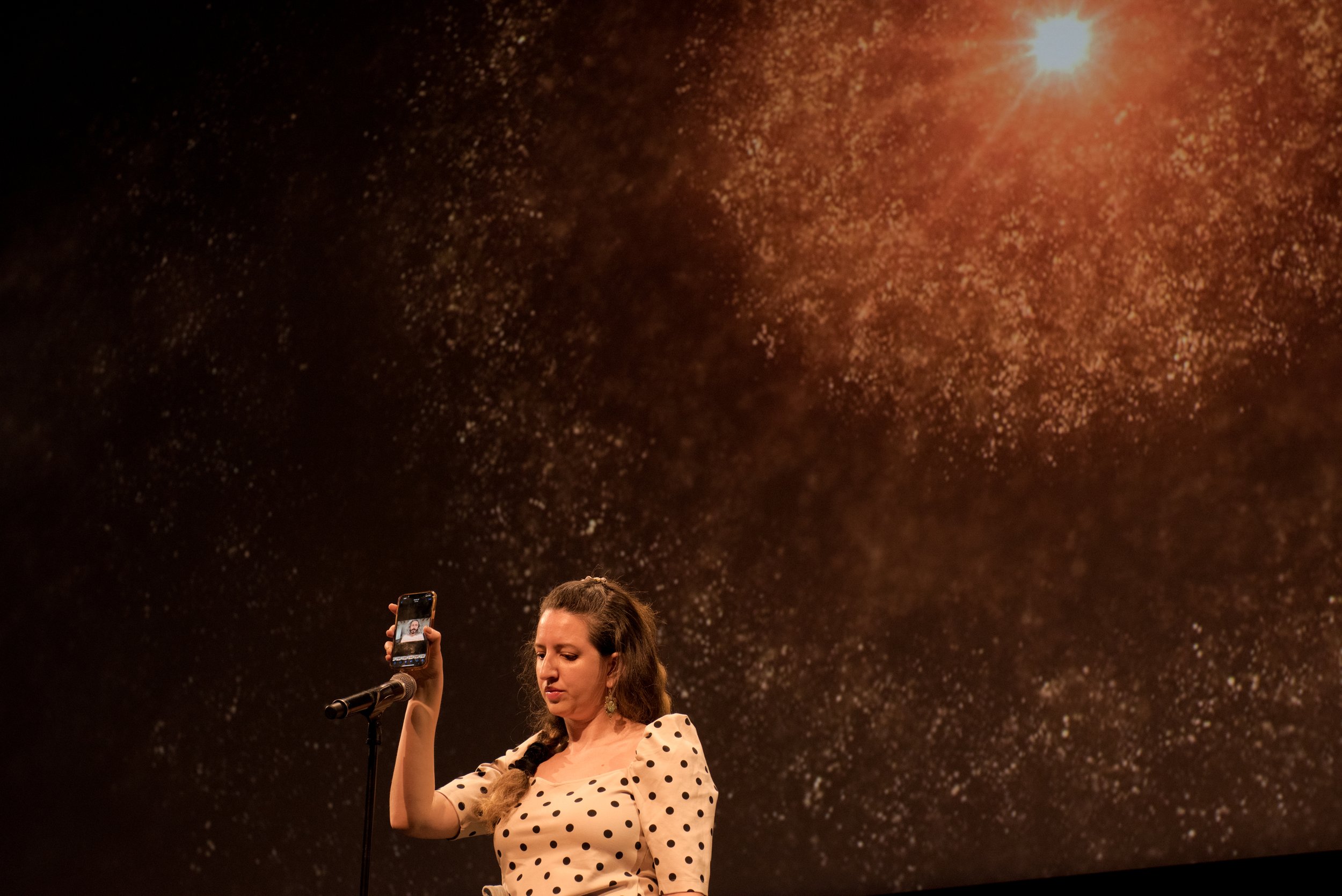
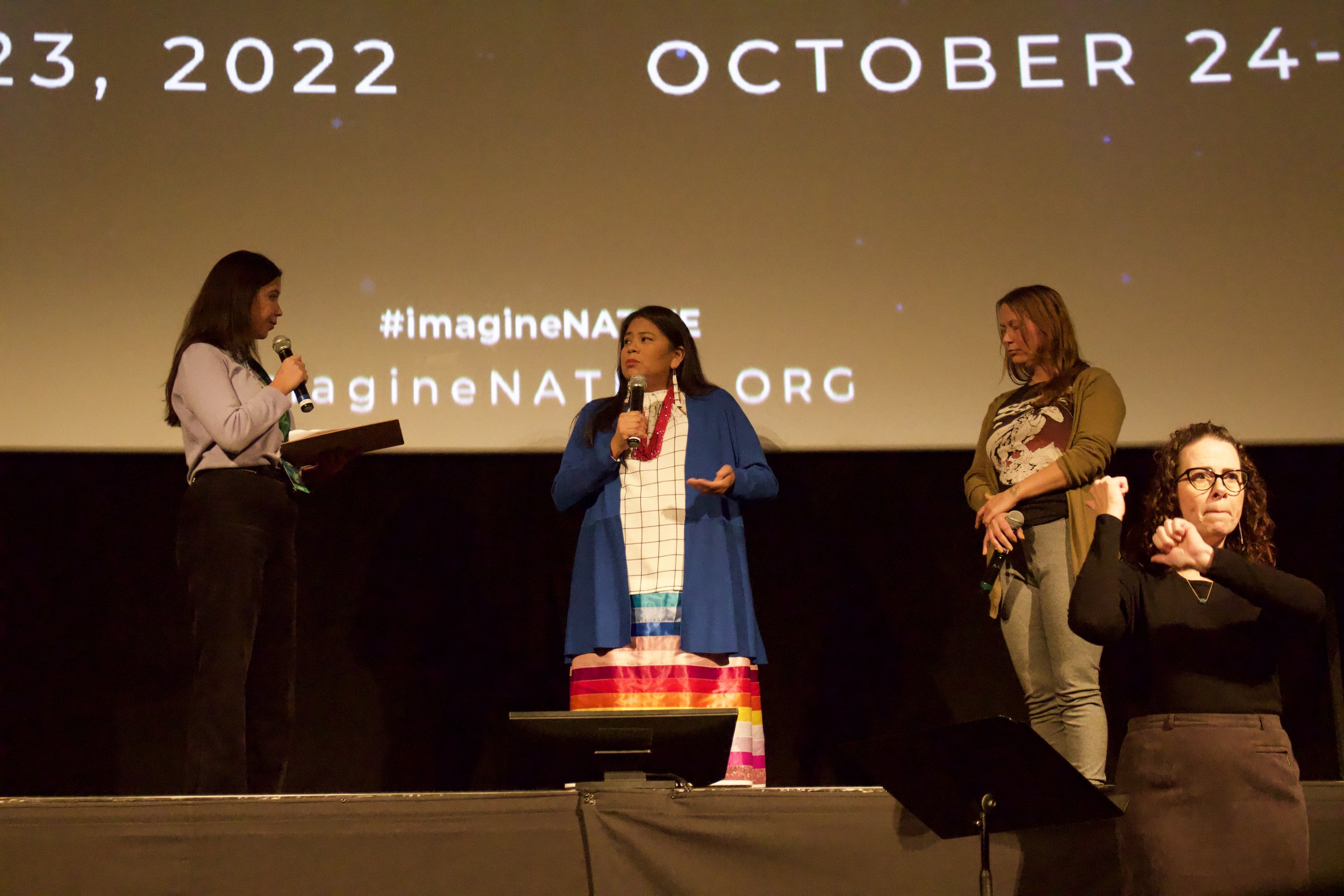
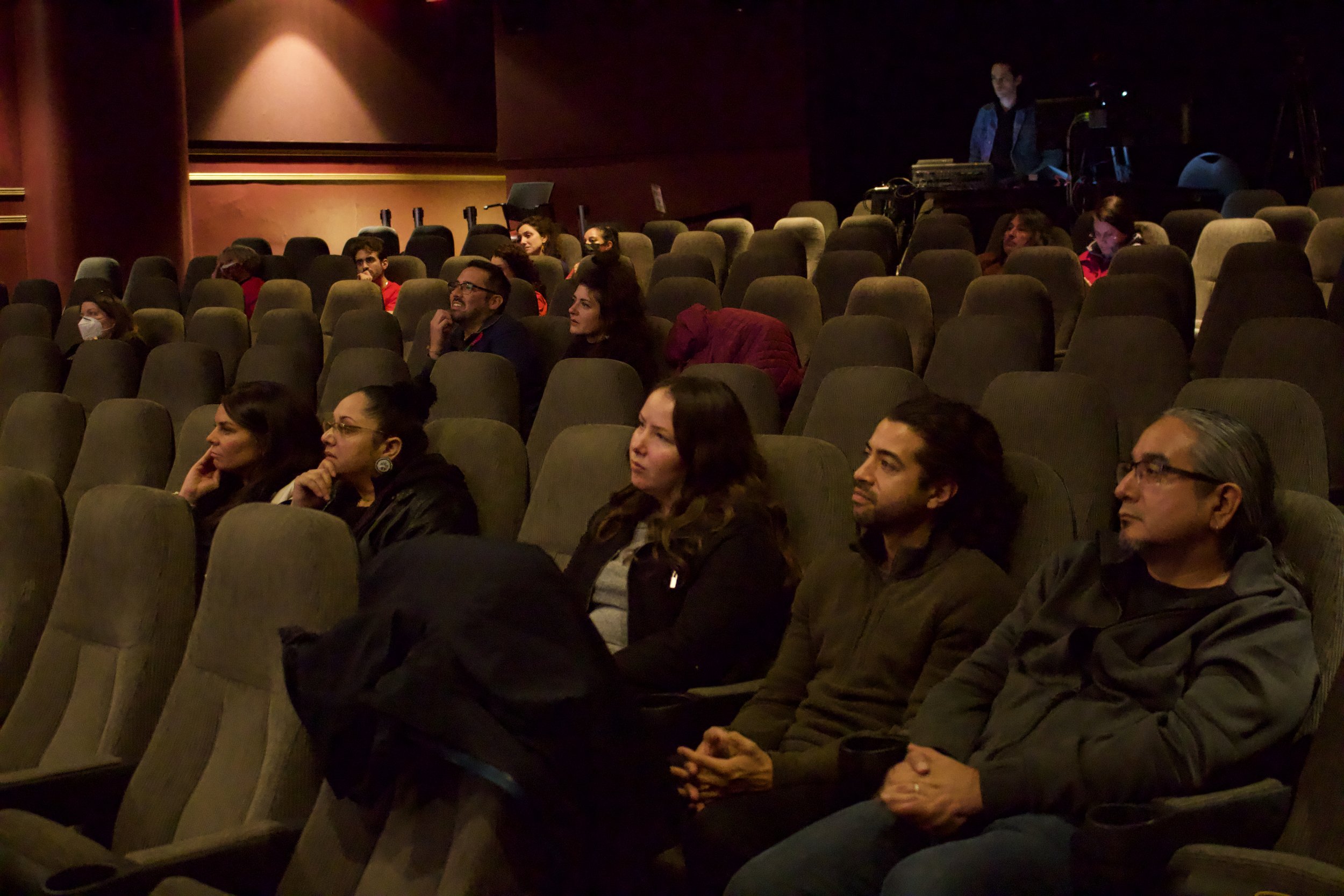
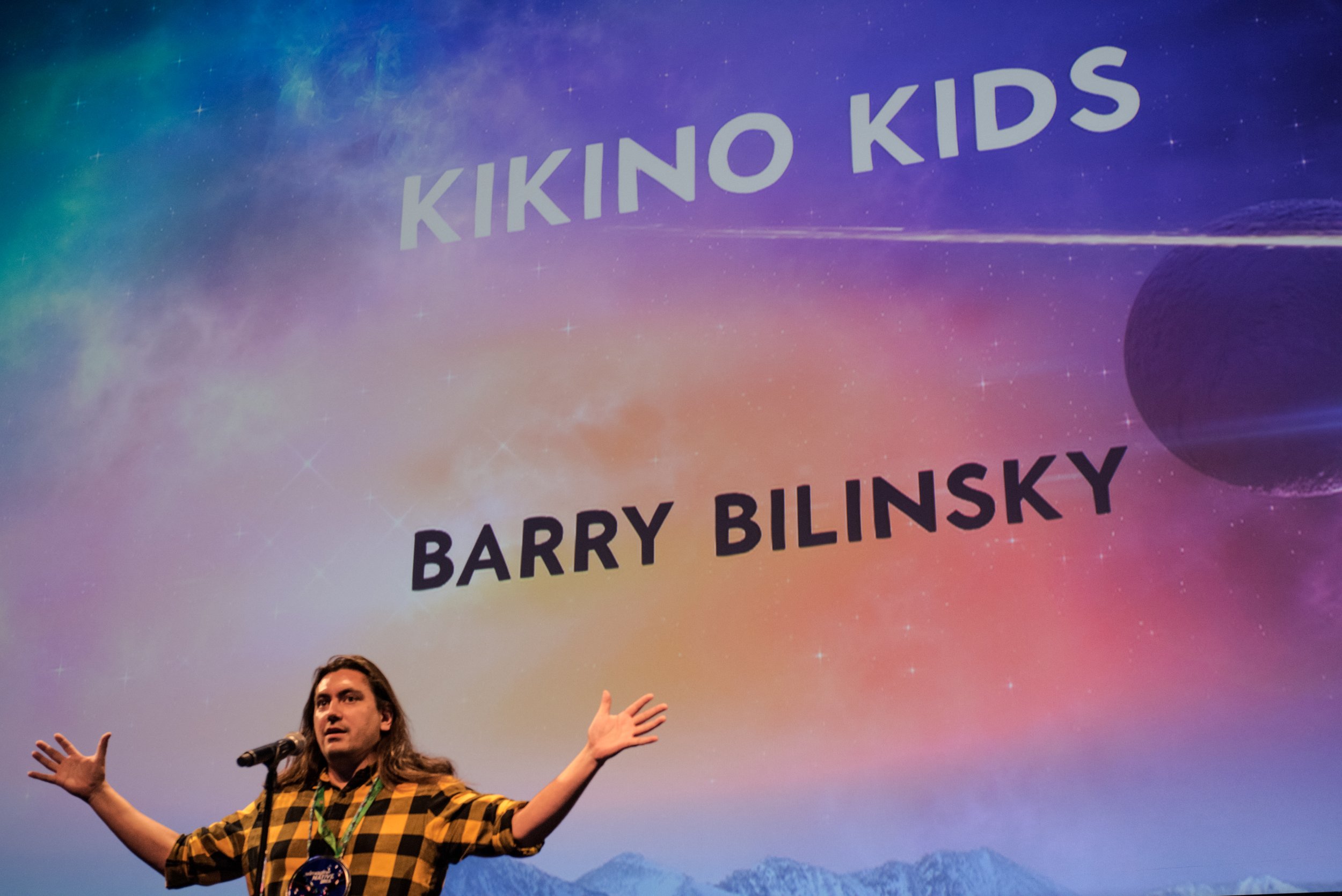
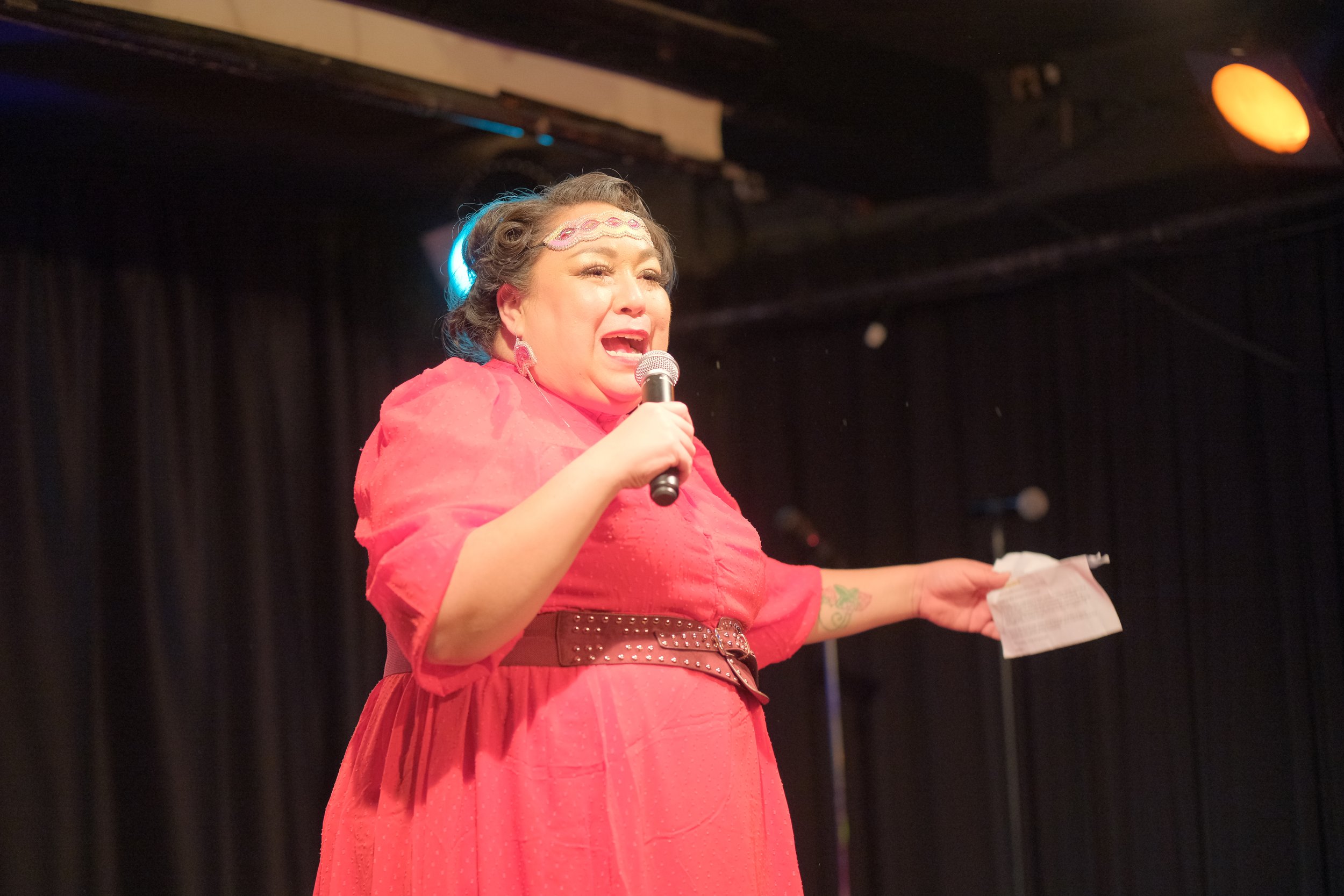
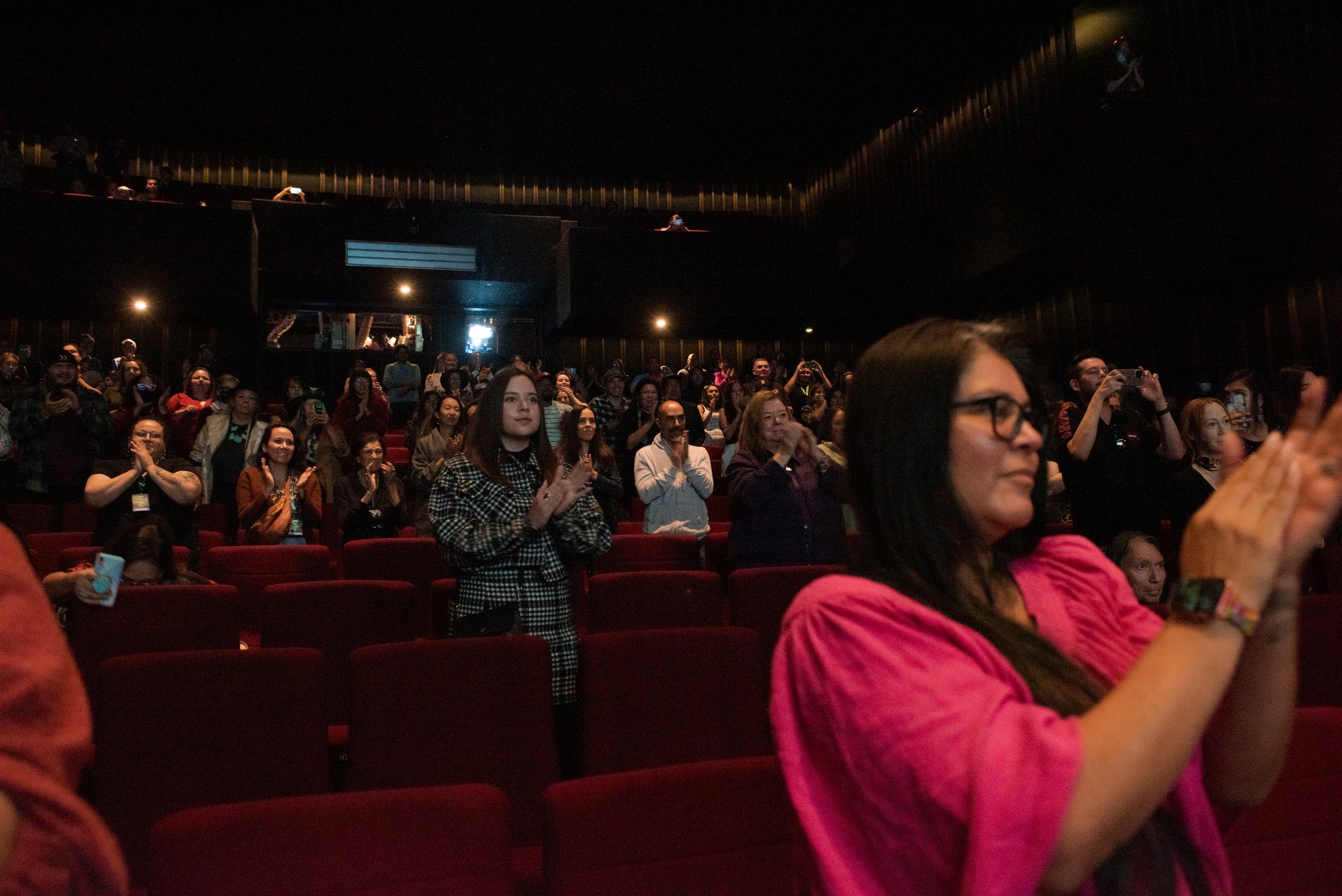
“The festival allows us to take back our stories that were once told by people who are not from our Nations. That colonial romanization of our stories does not focus on the good and resilient aspects of our community, the parts that have kept us strong while living over 500 years under settler colonial law in Canada. We’re still here,” says Brydon King of Wasauksing First Nation.
Brydon King, winner of the Experimental Audio Award for “Sabikeshiinh.” Image by Danielle Khan Da Silva.
King is the recipient of the Experimental Audio Award at the 2022 imagineNATIVE Film + Media Arts Festival for his piece titled “Sabikeshiinh.” Sabikeshiinh means ‘spider’ or ‘Little Net Weaver’ in Ojibwemowin or Anishinaabemowin, the language of the Anishinaabe people. King experiments with audio using a variety of devices like drum machines, synthesizers and sequencers to create Generative Music. He showcases his Indigenous heritage by titling his audio tracks in Anishinaabemowin or with English translations.
“It’s a way to highlight not only the language skills I have, but how many language speakers we have in our community and their willingness to share their teachings,” says King. The intergenerational transfer of Anishinaabemowin, which is primarily spoken in Canada and the U.S., is important for the preservation of Anishinaabe identity and culture as it is also used in the officiating of Ojibwe ceremonies and the repatriation of cultural objects. The revitalization of Anishinaabemowin is essential to prevent it from becoming an endangered language amongst the next generation.
By providing a platform for Indigenous perspectives and creativity, the imagineNATIVE Film + Media Arts Festival, first launched in 2000, is doing its part in creating a greater understanding of Indigenous peoples and cultures through film, video, audio and digital media. ImagineNATIVE is the world’s largest presenter of Indigenous screen content and a global centre for media arts, with Indigenous artists from across the Americas, Europe, Asia, Australia and New Zealand.
Abenaki filmmaker, artist and activist Alamo’s Obamsawin at the Welcome Gathering for the 2022 imagineNATIVE Film + Media Arts Festival at the Daniels Spectrum Ada Slaight Hall in Toronto. Image by David Coulson.
“From being provided a space to exhibit my work to a broader audience to connecting with other Indigenous artists, I was grateful for the experience. I met Māori people from New Zealand and Sami people from Norway who all shared great information and similar stories of land dispossession, racism, oppression…we really connected that way,” says King on sharing the space with other artists and people of the land.
Petyr Xyst, a Laguna Pueblo filmmaker from Albuquerque, New Mexico, was the 2022 winner of imagineNATIVE’s Innovation in Storytelling Award for his short film “The Original Shareholder Experience” which he wrote, directed and edited.
Petyr Xyst, winner of the Innovation in Storytelling Award for “The Original Shareholder Experience”. Image by Danielle Khan Da Silva.
A satirical thriller where an Indigenous telepresenter must contend between her morals and her career when selling a genocidal product on live television, “The Original Shareholder Experience” is social commentary on cultural appropriation.
“When I became an Indigenous Film Fund fellow with the Sundance Institute, I got to go into corporate media spaces for the first time and while I’m grateful for the experience, it was illuminating to be in boardrooms with mostly white-male executives. I had this paranoid, cynical and perhaps founded feeling that I was there because of the new market for Indigenous media, not because of their interest in our perspectives and stories,” says Xyst on the inspiration behind his short film.
“Most people’s experiences with Indigenous people are informed by older media where we’re depicted as mythical, beautiful people that are impossible to understand, instead of regular people. That is what spurred me to work on this project,” he says.
Lu Linares (left), Tara Hakim (middle), and Angela Sweeting (right), imagineNATIVE’s operations team. Image by Danielle Khan Da Silva.
For Xyst, imagineNATIVE was an affirming experience. “Going to this festival and seeing people who looked like me, who approached film as a medium and talked about the arts critically like me, and who are incredibly smart and inspiring, was beneficial to me as an artist and a person,” says Xyst.
The imagineNATIVE Film + Media Arts festivals brings together a diversity of Indigenous creators who produce on different platforms. Sister duo Keara & Caeleigh Lightning won the New Artist in Digital + Interactive award for their magical tea-making game Mikiwam, produced with support from the Canada Council for the Arts. Mikiwam was developed by Ekosi Studios, an “independent queer Nehiyawak Indigenous game studio” created by Keara and Caeleigh to make narrative games about Indigenous futures.
Sisters Keara & Caeleigh Lightning, winners of the New Artist in Digital + Interactive Award for their game “Mikiwam.” Image by Danielle Khan Da Silva.
The virtual reality experience “This Is Not a Ceremony,” created by Niitsitapi writer and director Ahnahktsipiitaa (Colin Van Loon), won the Digital and Interactive Award. The 21-minute VR experience is available in English, French and Blackfoot, and confronts “some of the darker sides of living life in Canada while Indigenous.”
An attendee at the 2022 imagineNATIVE Film + Media Arts Festival participating in Colin Van Loon’s VR experience “This Is Not a Ceremony”. Image by Danielle Khan Da Silva.
The Indigenous drama film “We Are Still Here” took home the Dramatic Feature Award by showcasing the perspectives of eight protagonists across 1,000 years into the past, present and future. With ten directors, the stories are of the kinship, grief, and resilience of Indigenous people from Australia, New Zealand and the South Pacific who have overcome and are enduring colonial trauma and the attempted erasure of lives and culture.
Renae Maihi, one of the winners of the Dramatic Feature Award for the film “We Are Still Here”. Image by Danielle Khan Da Silva.
“Attending this festival was interesting because I got to see how people approached video art, experimental audio work, and visual art. Seeing the horizons expand on what's possible is also lighting a fire under creators to get more creative…they’re more in competition with each other to really push the medium forward in a way that’s super exciting,” says Xyst, on being inspired to think outside the box of narrative film after attending imagineNATIVE.
The 2023 imagineNATIVE Film + Media Arts Festival is set to take place from October 17-29 in Toronto. You can view last year’s award-winners below and find their work here.



